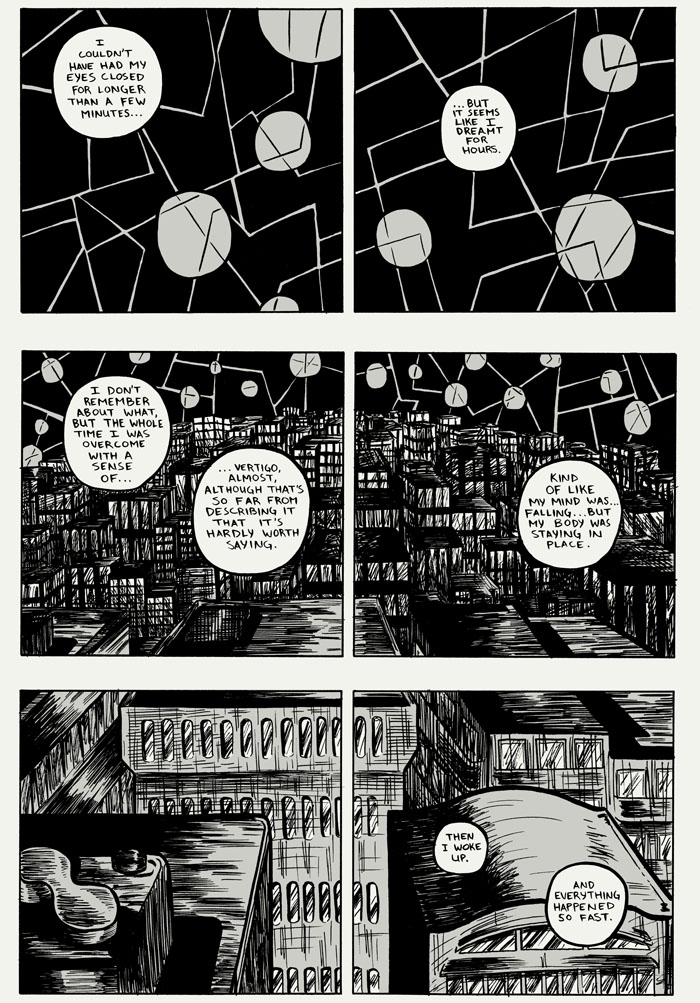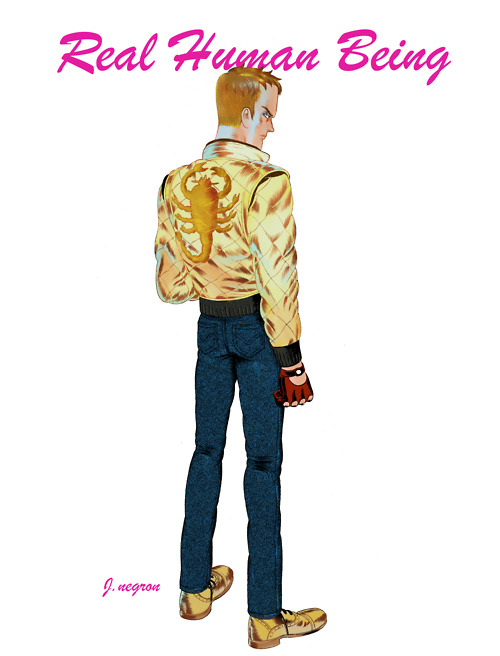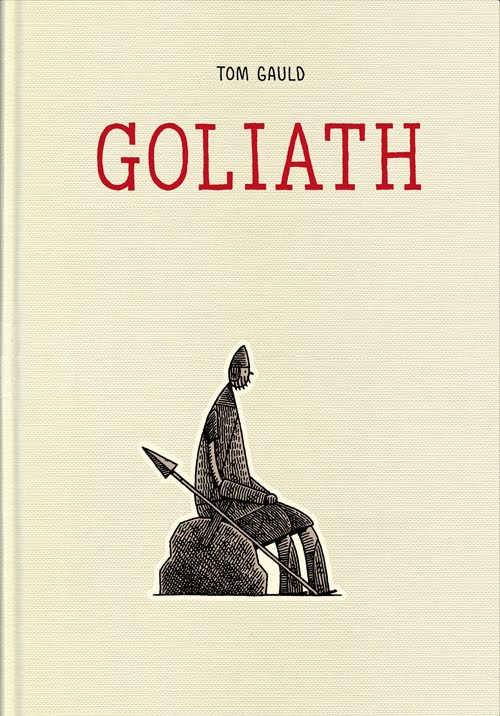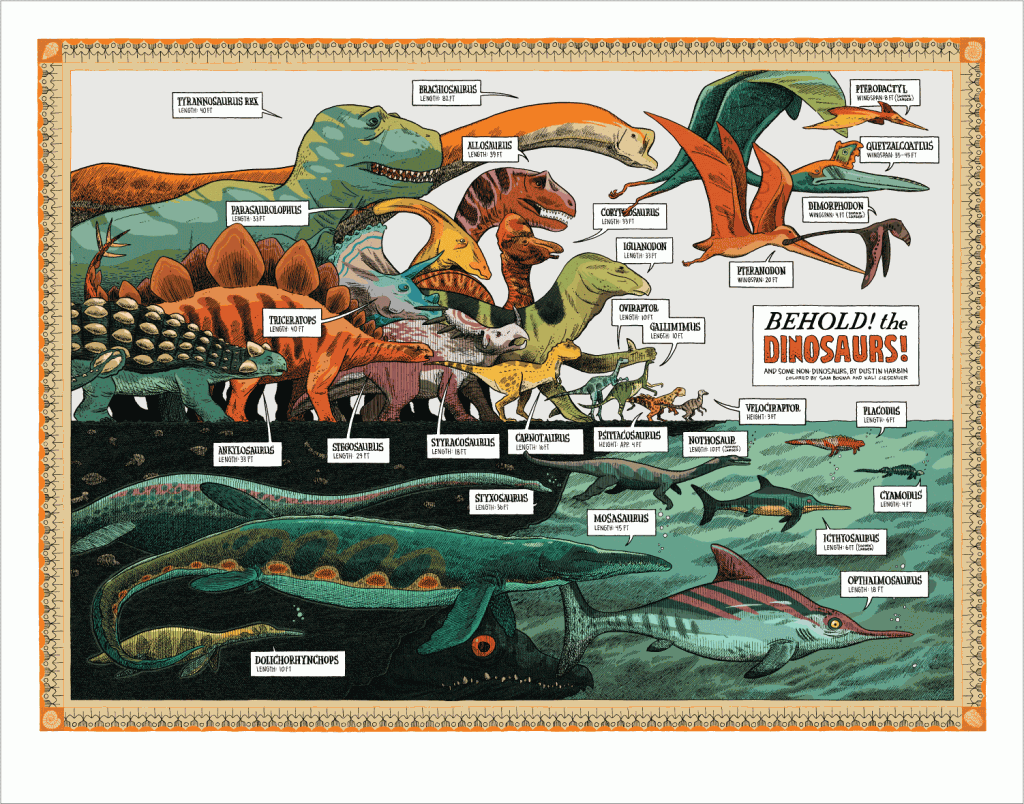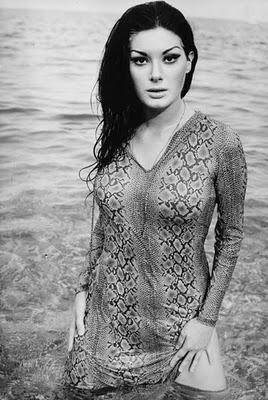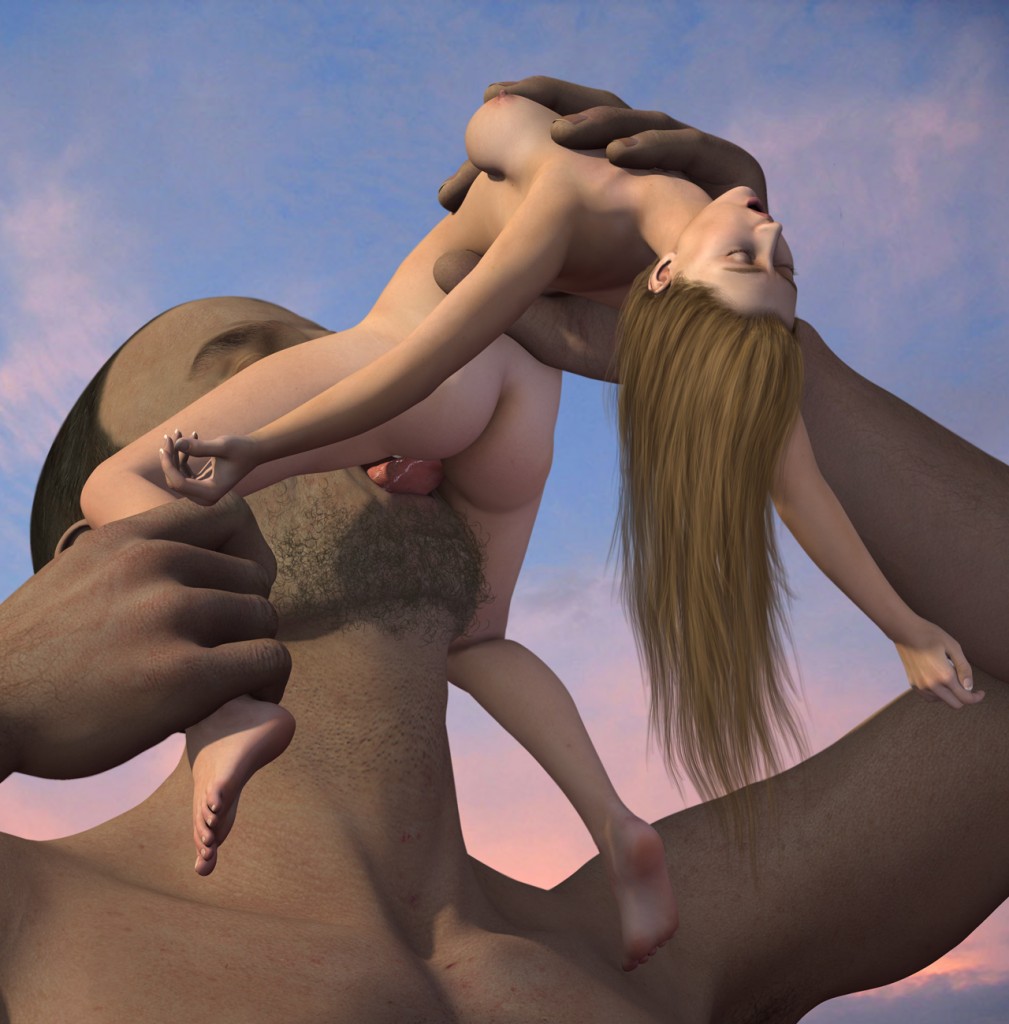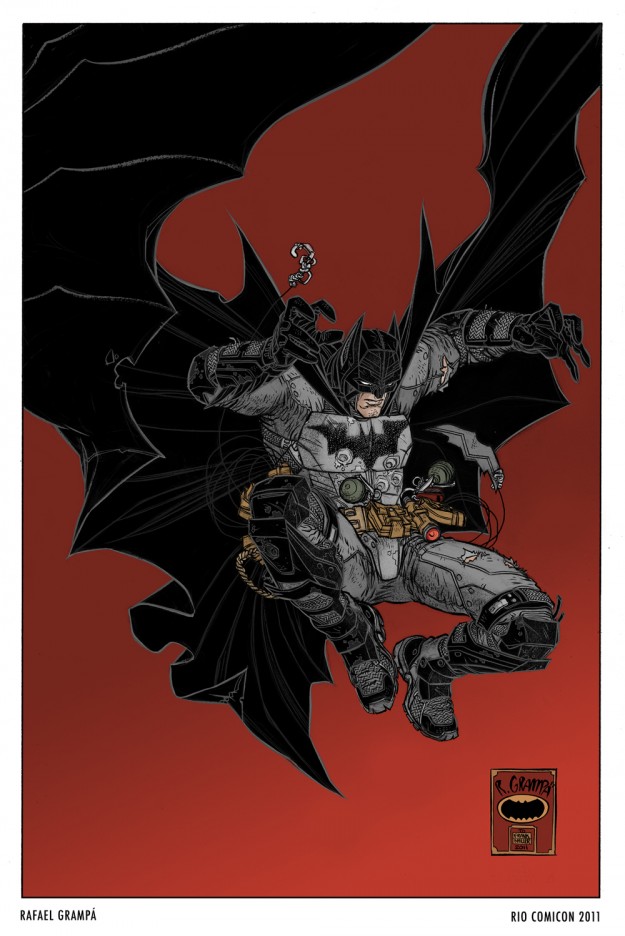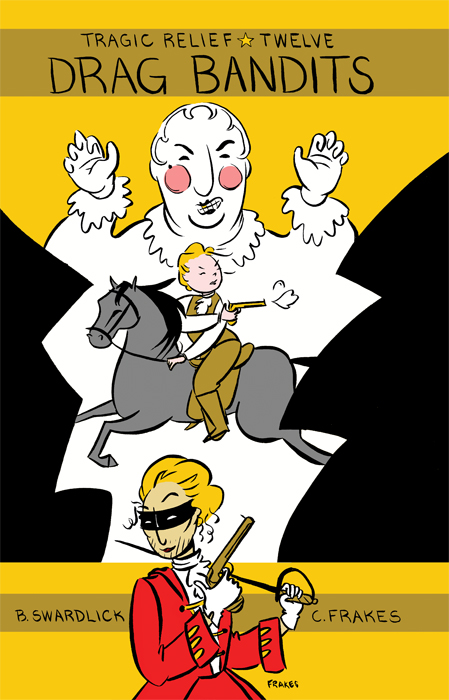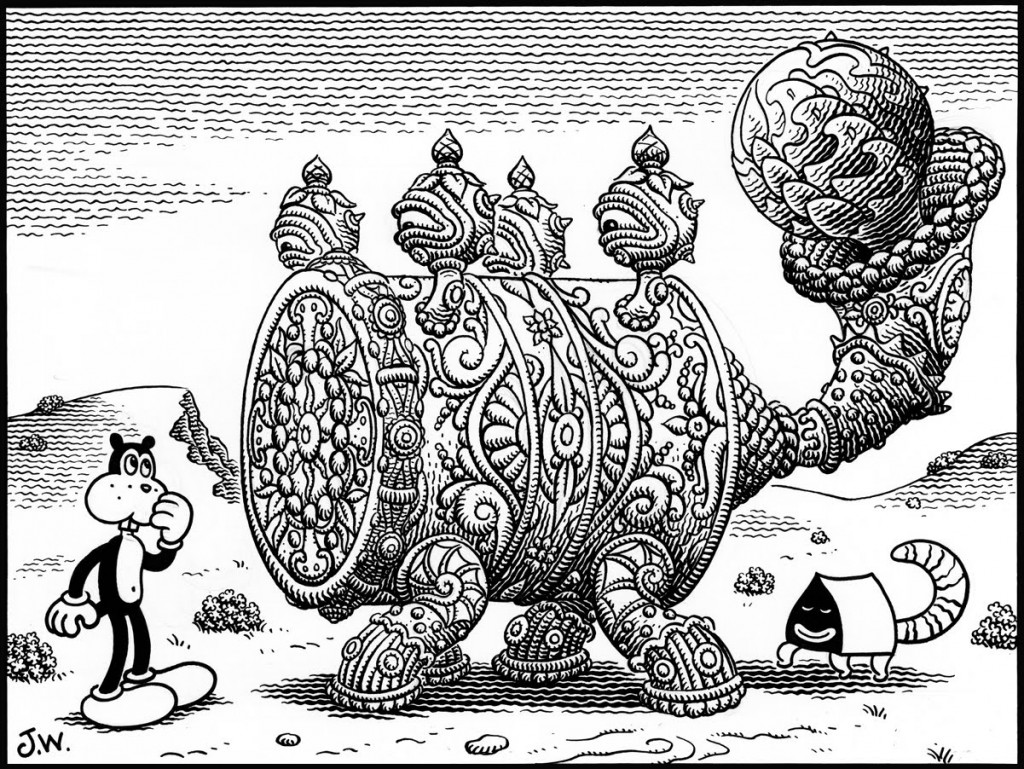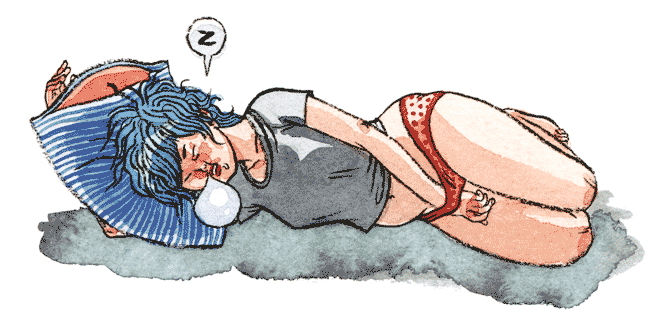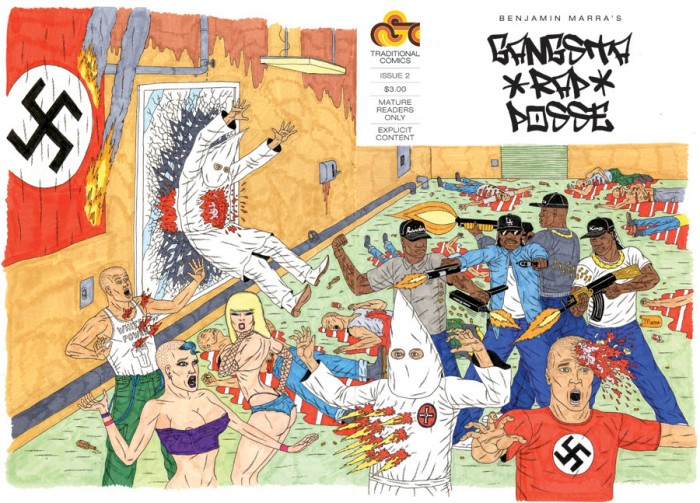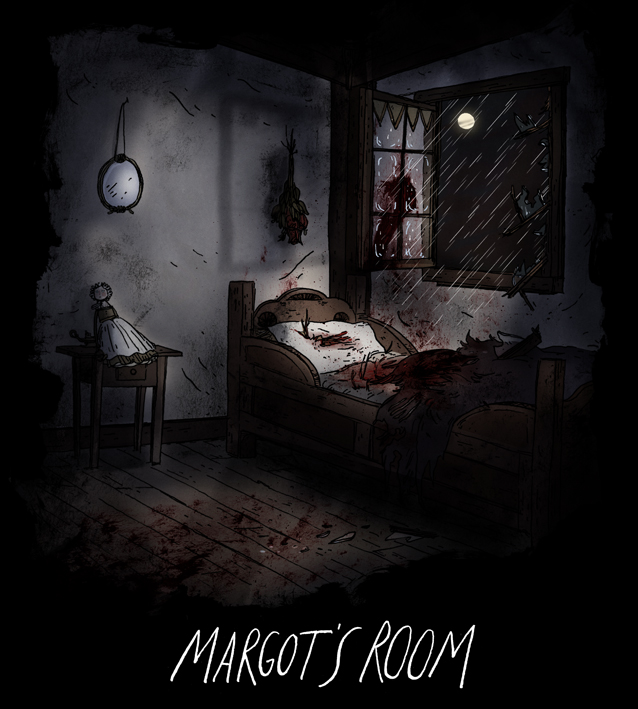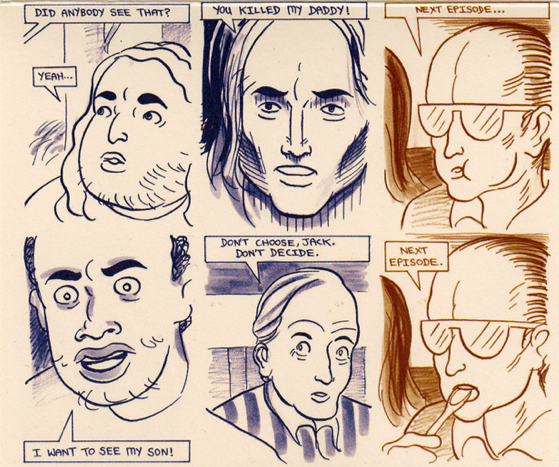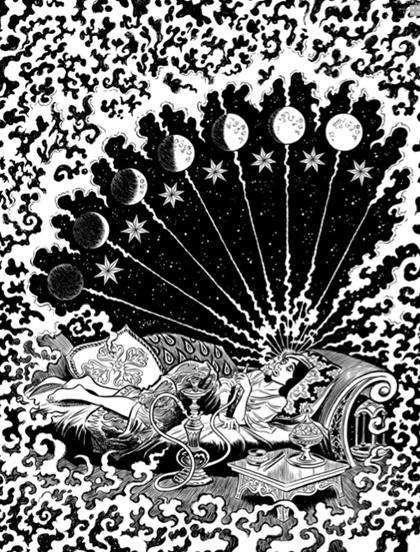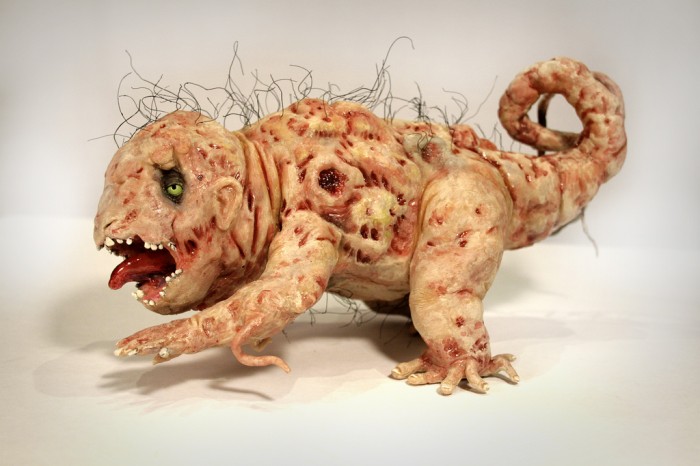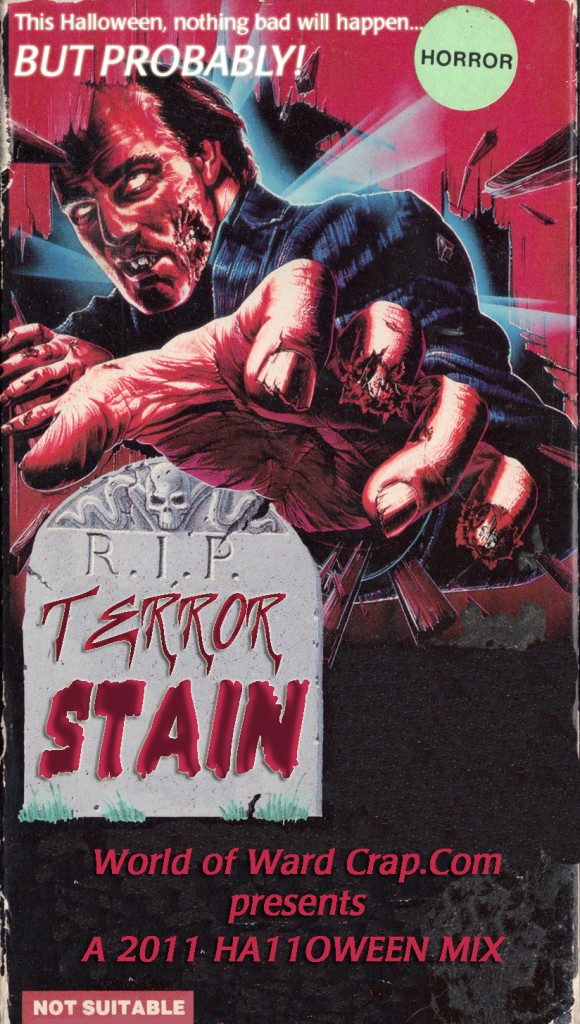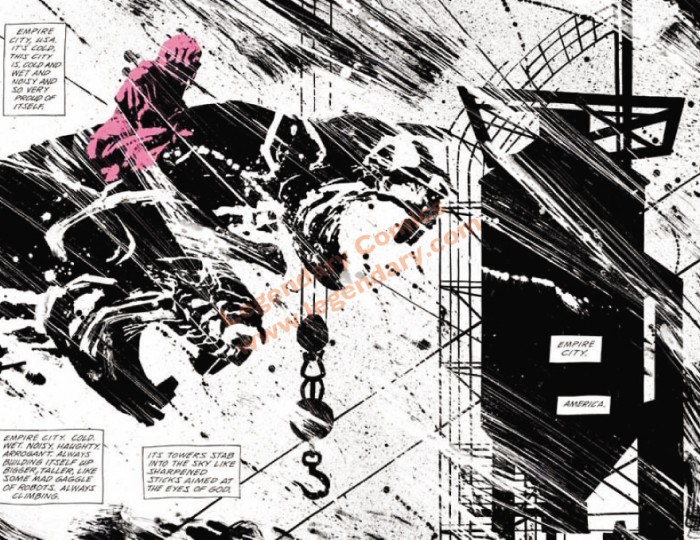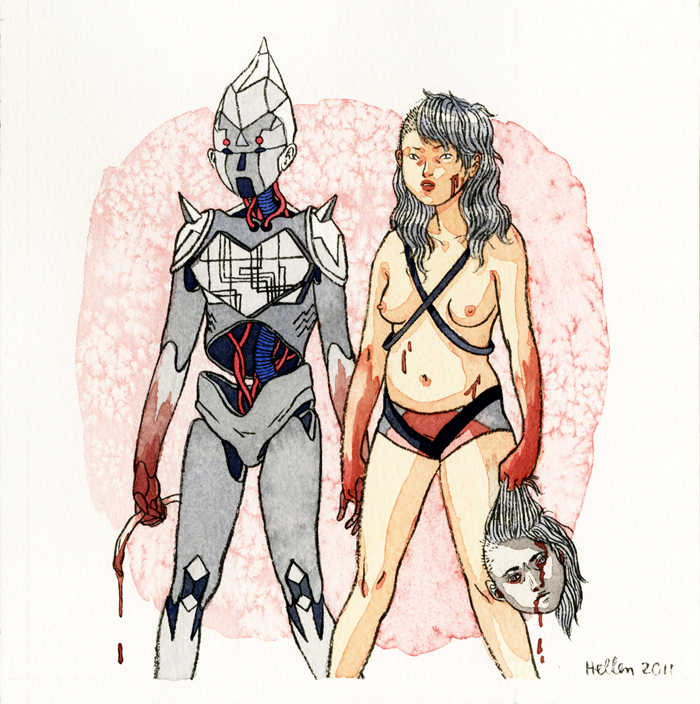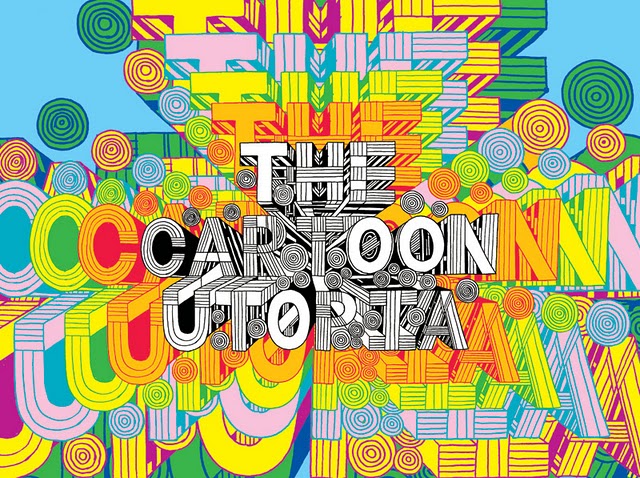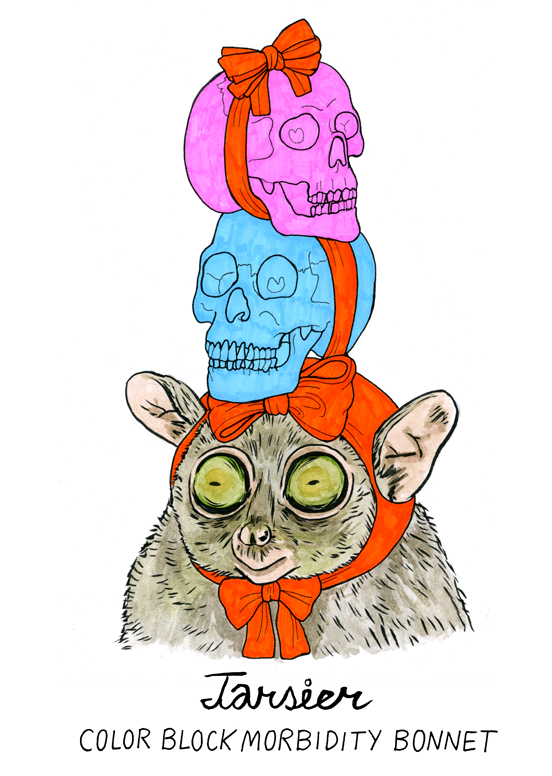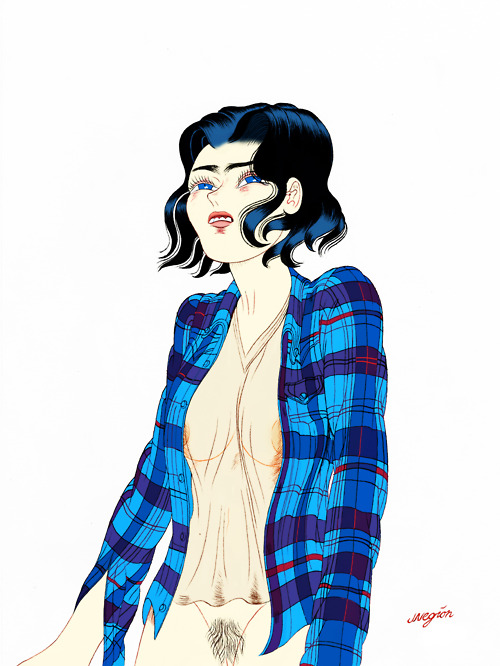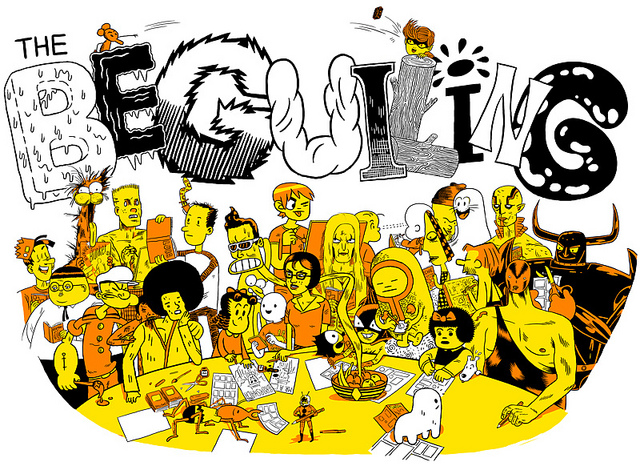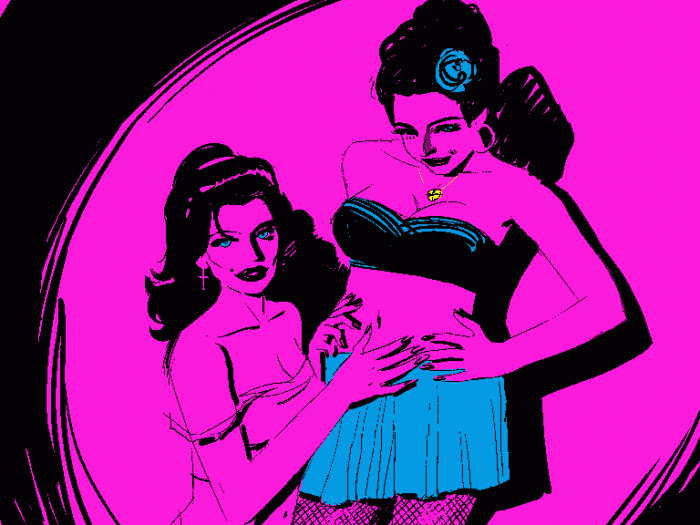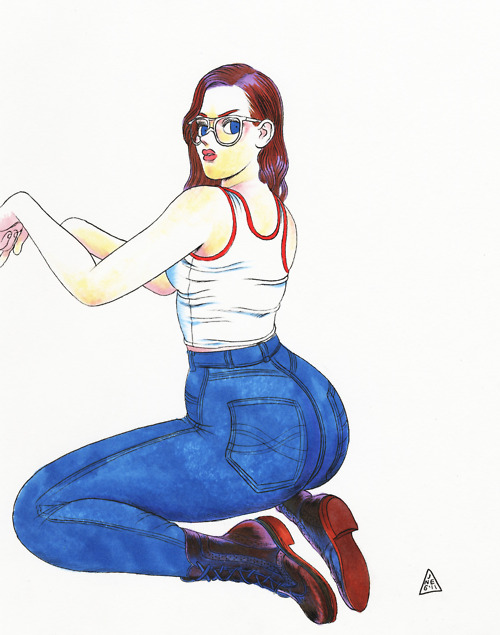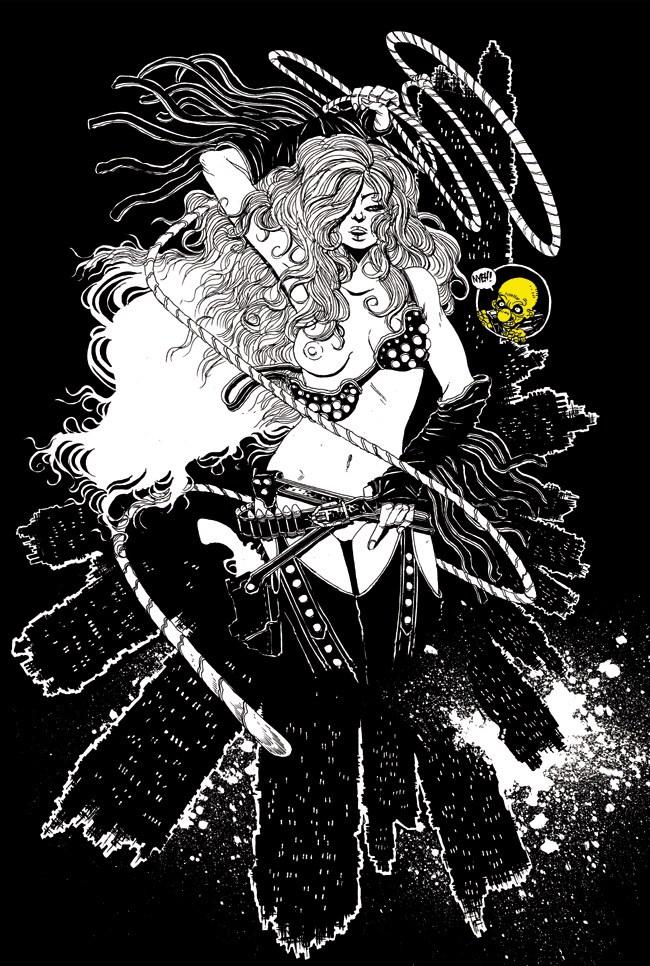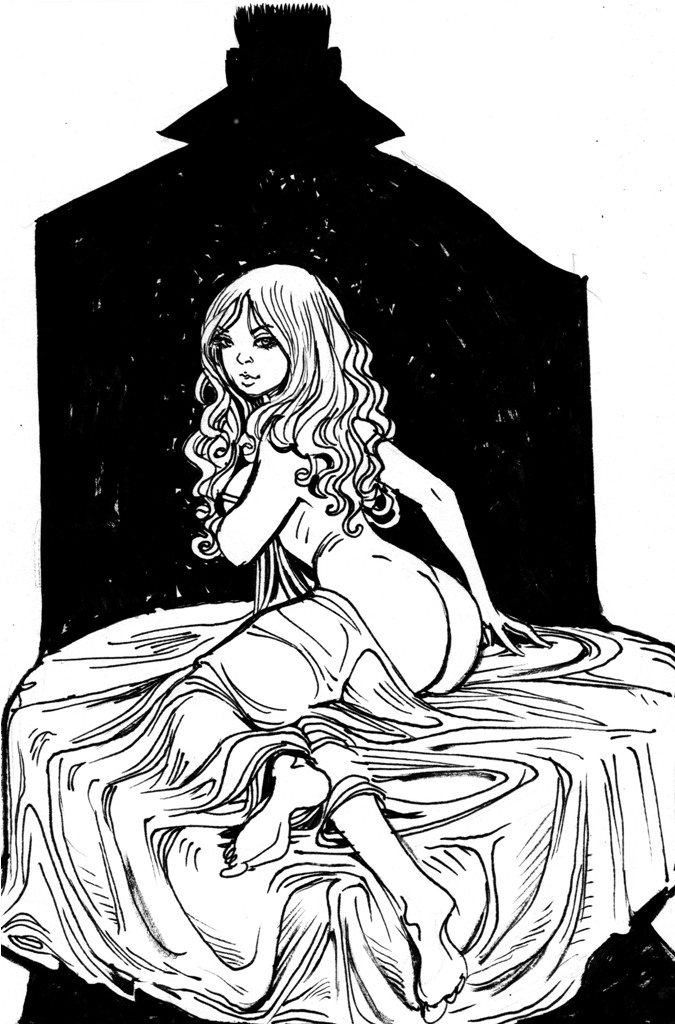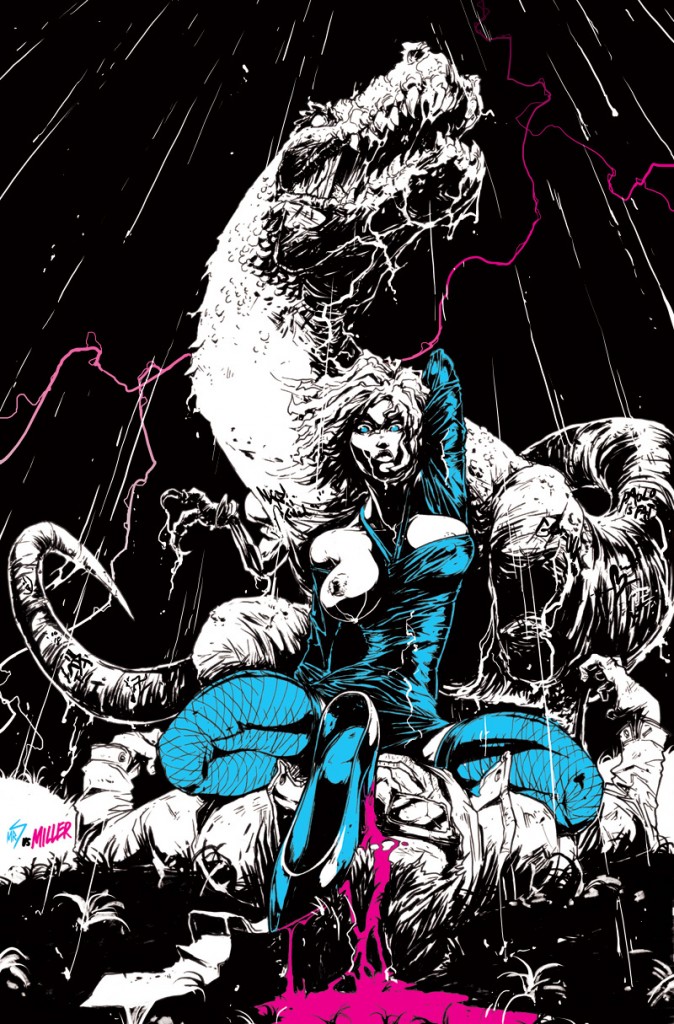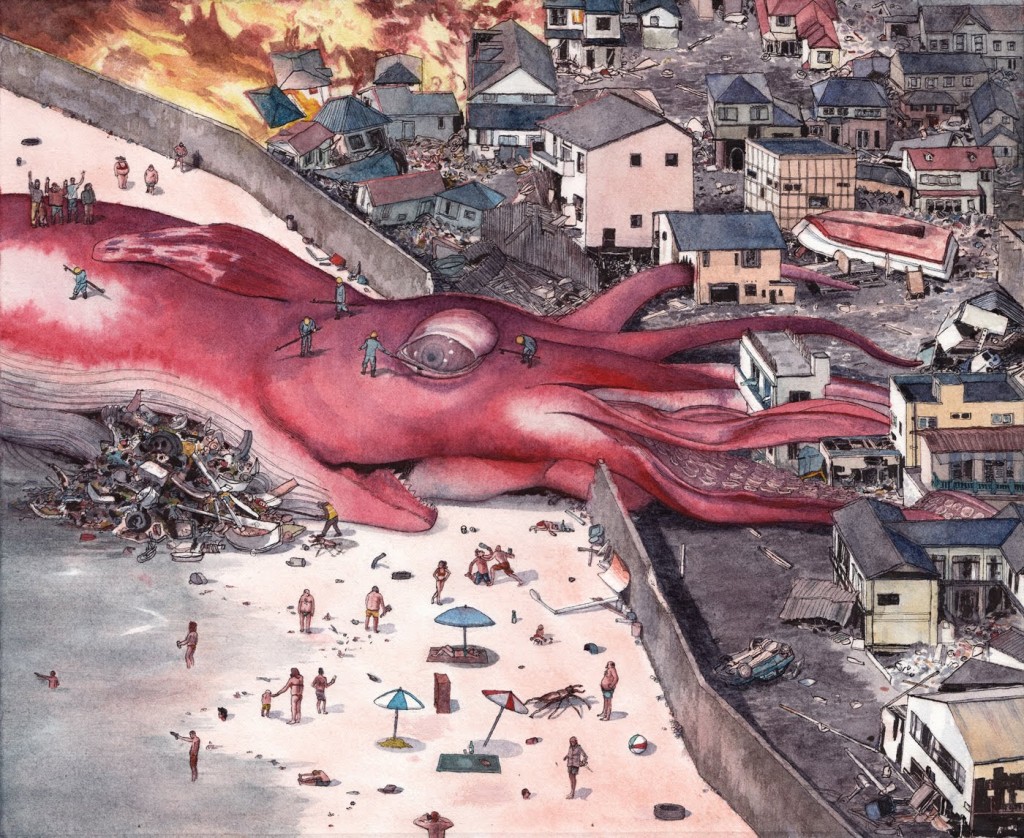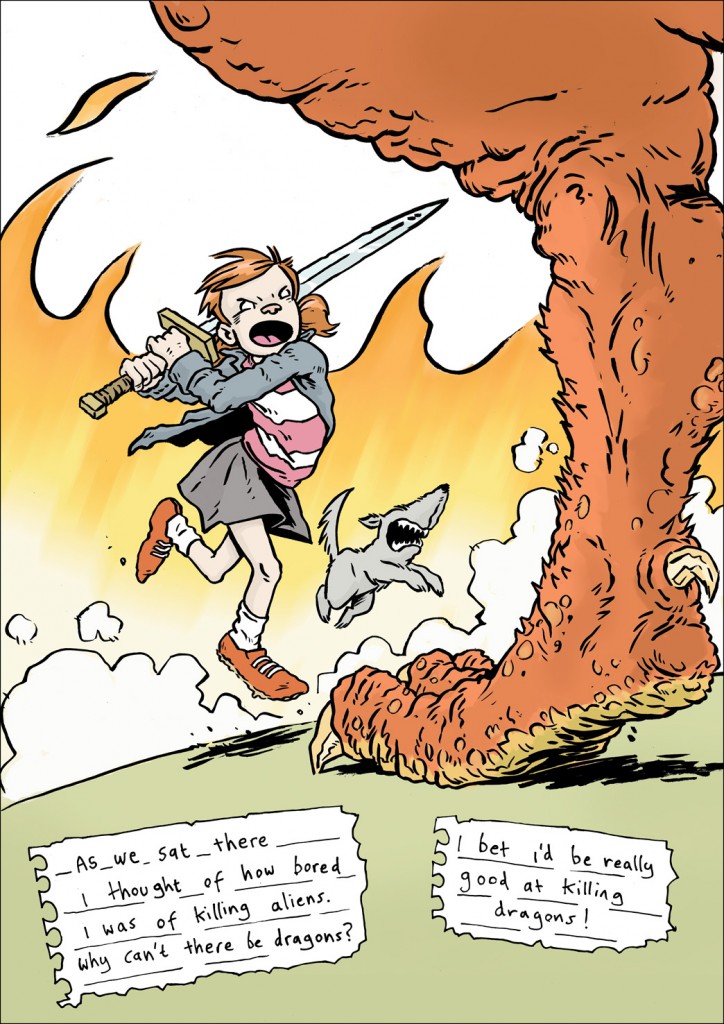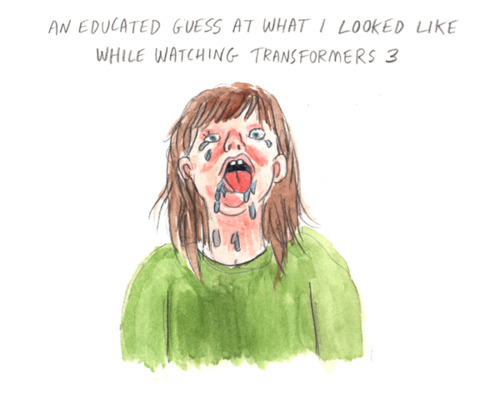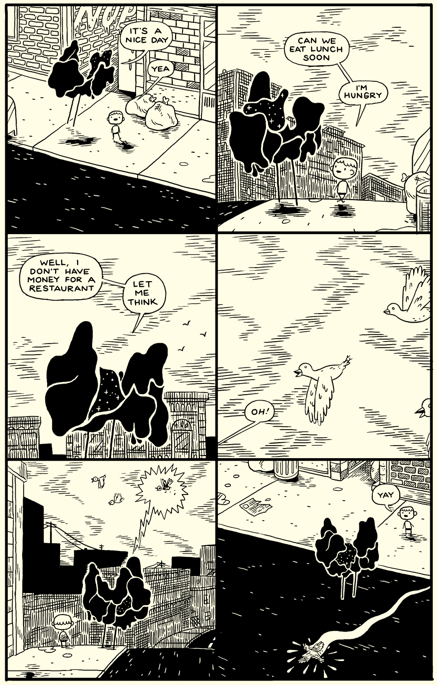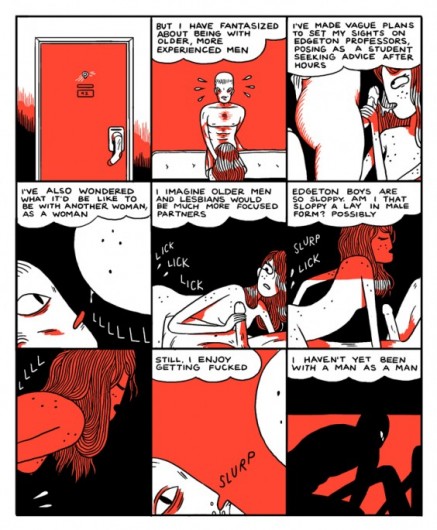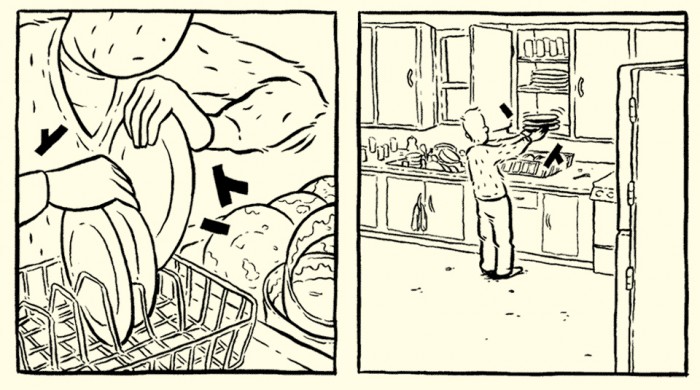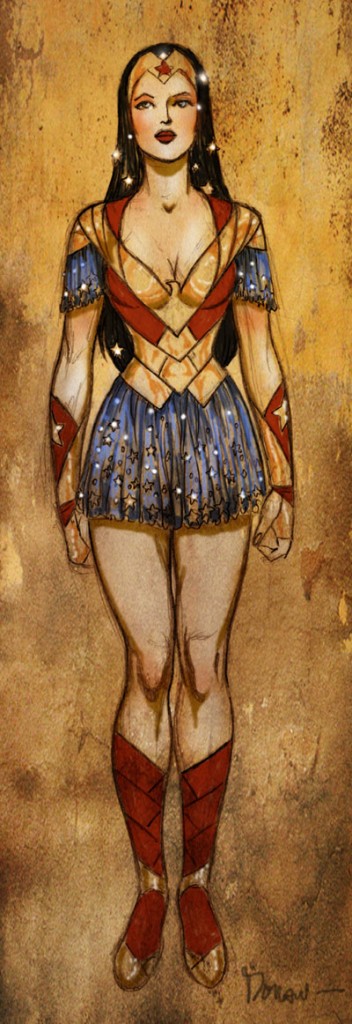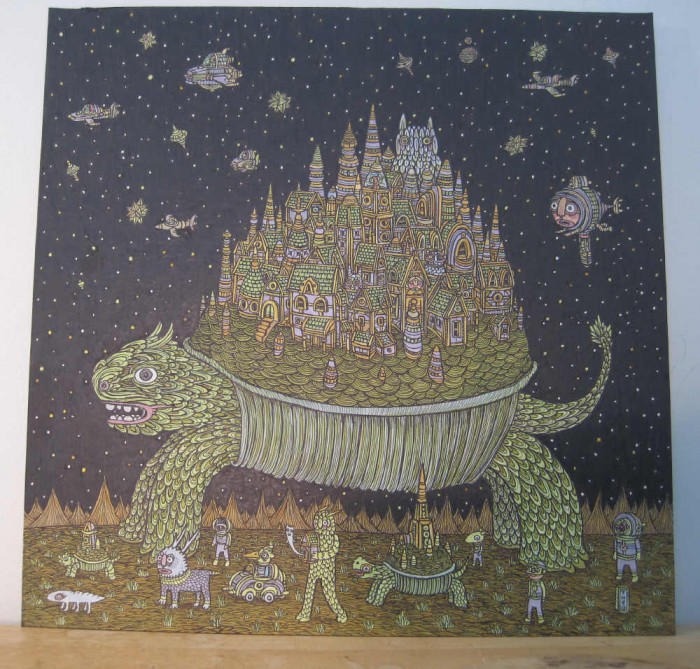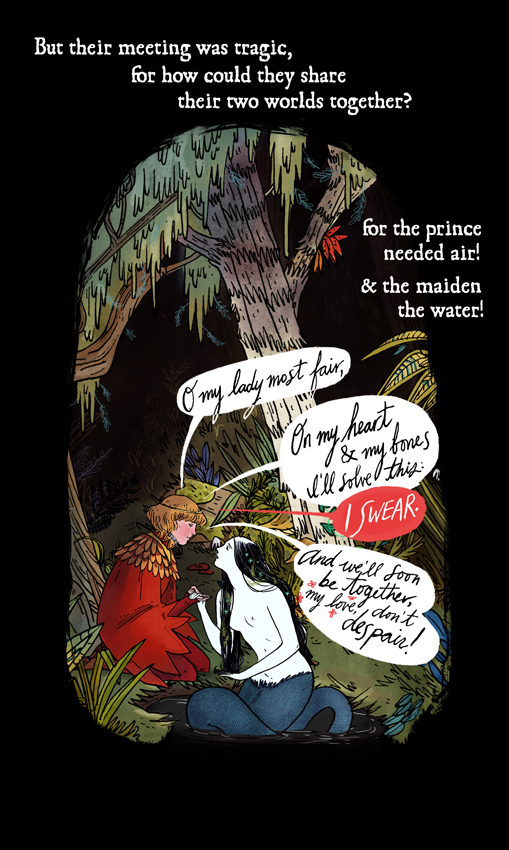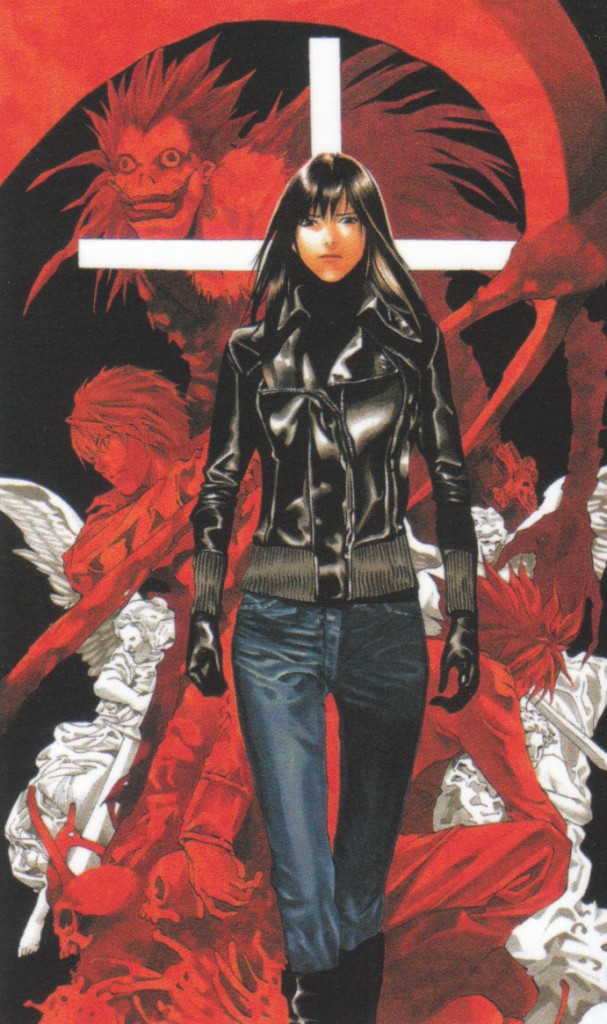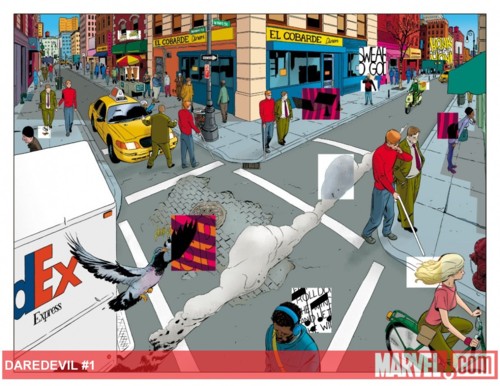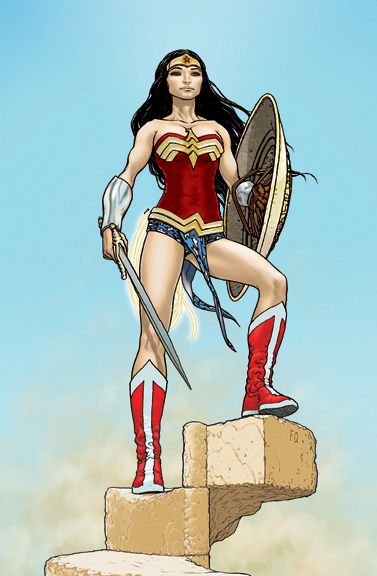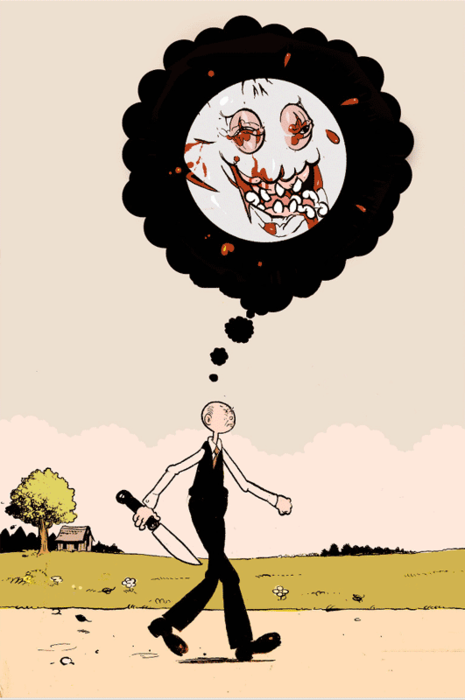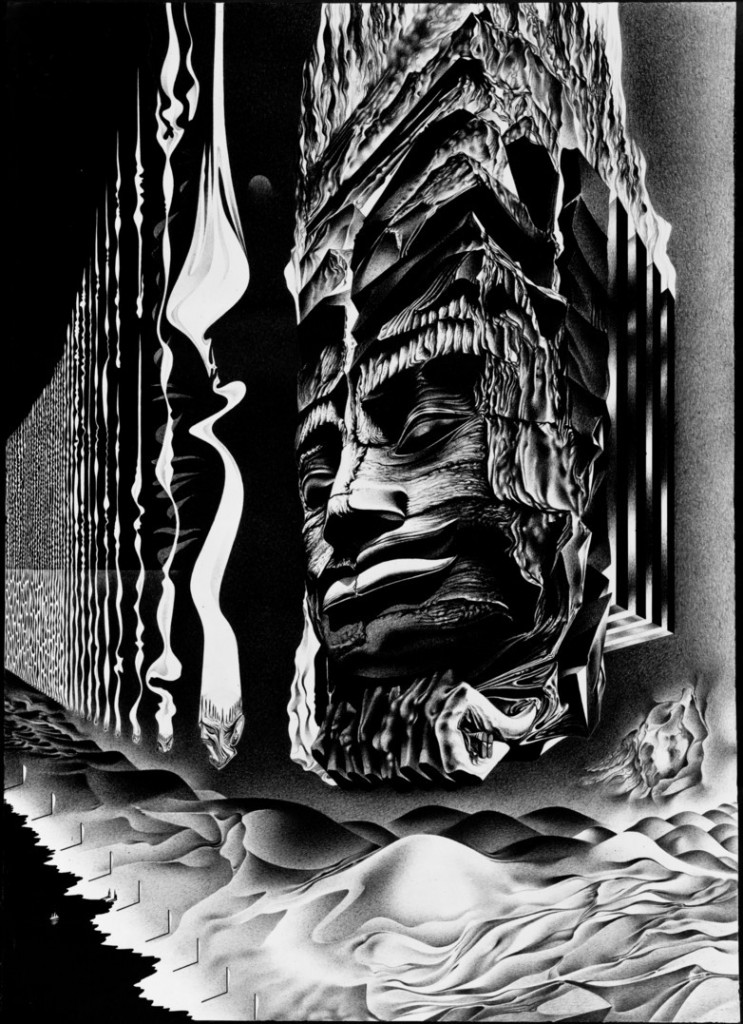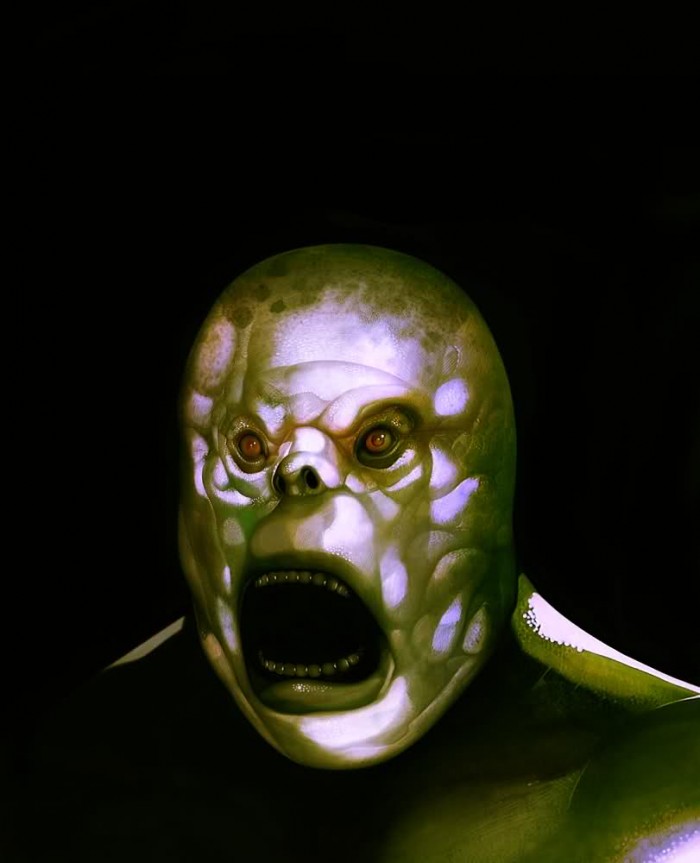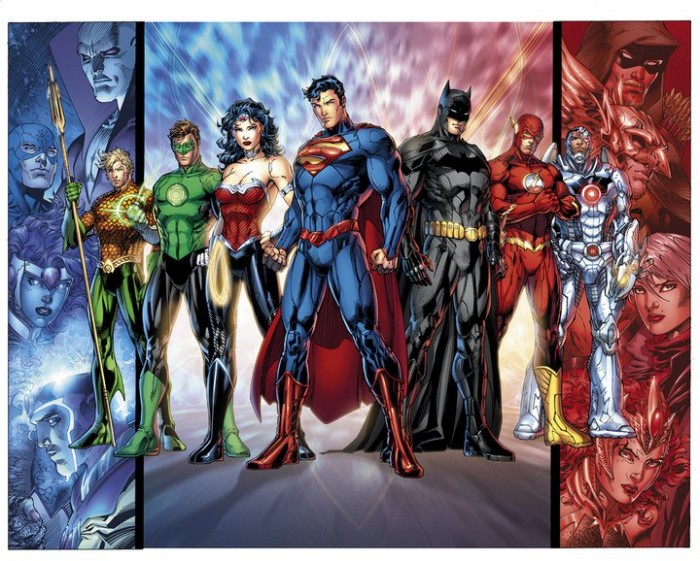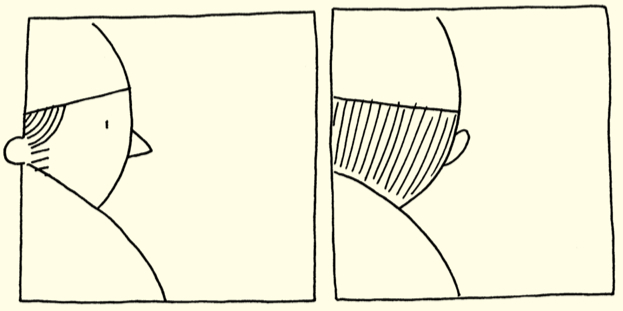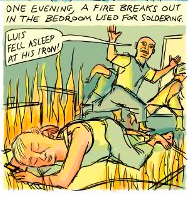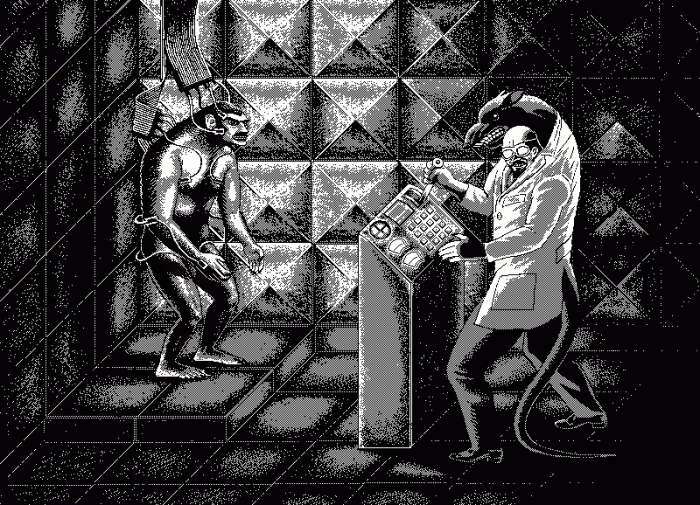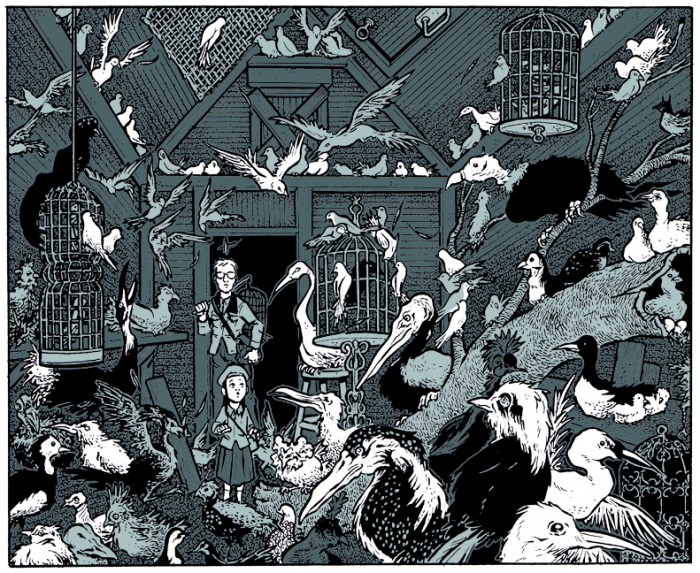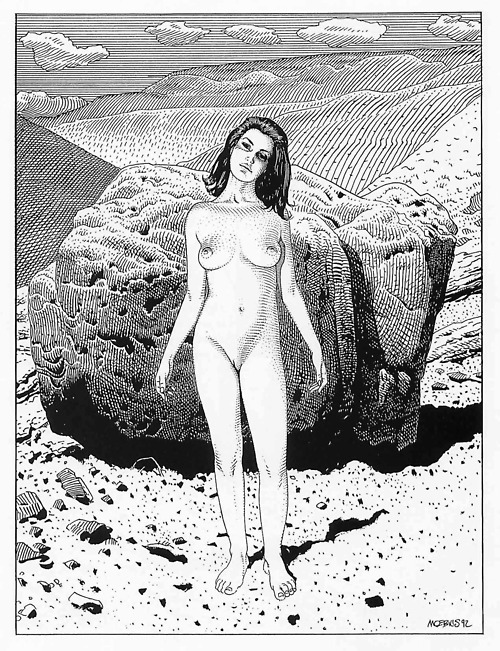Posts Tagged ‘TV’
Carnival of souls: Marvelcution ’11, more Sexbuzz, Jonny Negron does Drive, more
October 21, 2011* Alejandro Arbona and Jody LeHeup, two of Marvel’s best editors and the men responsible for Invincible Iron Man & Immortal Weapons and Uncanny X-Force & Strange Tales respectively, were laid off by Marvel yesterday, among many other employees of long standing. I’ve been pretty upset about this. Comic Book Resources provides the facts; Tom Spurgeon and Heidi MacDonald provide much-needed and highly infuriating context.
* “Dylan [Williams] said something once that really stuck with me. ‘Art isn’t bullshit and love isn’t bullshit.’”—Austin English
* Wow, speak of the devil: Andrew White has posted the complete Chapter Five of Sexbuzz.
* Vasilis Lolos is prepping a webcomic called Supersword, the goal of which, he says, is “Lord of the Rings for the Nintendo generation.” Sure, I’ll eat it.

* Well, it happened: Jonny Negron saw Drive. AND THE REST IS HISTORY.
* Tom Gauld’s doing a book for Drawn & Quarterly? Tom Gauld’s doing a book for Drawn & Quarterly!
* Dustin Harbin drew some dinosaurs, Sam Bosma and Kali Ciesemier colored them, and it was good.
* Whoa: Matt Zoller Seitz says the new Kelsey Grammer drama Boss is a great show.
* The great cartoonist Jason lists his five favorite giallo actresses and posts a picture of Edwige Fenech for emphasis. Paging Dr. Purcell, Dr. Curt Purcell!
* Happy birthday to Mike Baehr of Fantagraphics. Like so many Fanta employees, he’s one of the good ones.
* Real Life Horror: I guess we’re sending flying killer robots to execute American teenagers from the sky at will now, which is super-fucking-exciting, isn’t it.
* Wow, Uno Moralez has really outdone himself with this image gallery. It’s called “Horny Goblyns,” and it makes the abbreviation NSFW a comical understatement.
* Sex, synths, teen angst/lust, eldritch horrors: Is there anything about Jérémie Périn’s video for “Fantasy” by DyE that isn’t one of my favorite things? (Hat tip: Steven Wintle.)
Mad Men thoughts: Special “…and the John Deere you rode in on” edition
October 19, 2011* Just finished Season Three, Disc Two. SPOILERS AHEAD.
* I’ll admit it: I’m looking forward to being able to type “Mad Men” into Google and go berserk the moment I finish the series so far almost as much as I’m looking forward to the act of finishing the series itself. For years now I’ve been very studious in avoiding talk about the series (I lead a life lived in terror of spoilers, basically.) But even so, some things slip through the cracks — and sad to say, Roger Sterling in blackface was one of those things. Because I’m usually so careful I have no idea how I came across the image, but sure enough, a couple of weeks ago a Google image search revealed Roger doing his best Al Jolson. I winced for many reasons, but “Aw, shit — that would have come as a complete shock otherwise” was not least among them.
* Fortunately (if that’s the right word), enough time had passed that I sort of forgot the moment was coming, and when it did come it was more than shocking enough on its own terms. Literally jaw-droppingly shocking in fact. I sat there on the train staring at my laptop catching flies as dapper, jolly, funny, skeevy, charming Roger Sterling serenaded his bonnie bride with centuries of unthinking racial animus and privilege smeared all over his face. I think my main thought was “blarrrrrrgggghhh.”
* I think that was Don’s main thought, too. The big question, I suppose, was what made Don more uncomfortable: Roger’s heedless racism, or his heedless foolishness? It’s the foolishness that Don smacks Roger around for at the end of the episode, but his conversation with the incognito Conrad Hilton at the club’s abandoned bar indicates a lingering sense of solidarity with the help, no matter who they are. As was perhaps the case when he ignored Sal’s hotel-room indiscretion, I get the sense that the only thing that makes Don judge a person is incompetence. Insofar as bigotry blinds one to the feelings of a class of other people who could otherwise be engaged and thereby communicated to as an audience, bigotry is a form of incompetence, and that’s what matters.
* I did permit myself a bit of googling after the episode was over, and a quick search for “Roger Sterling blackface” revealed some pretty shallow and facile thinking about Mad Men‘s approach to race prior to the episode. I’m both amazed and not at all surprised that people who get paid to write about these things mistook the way the show reduced African Americans to speak-only-when-spoken-to servants, or to saintly nannies turned to in times of crisis, or to evidence of one’s beatnik bonafides, as evidence of the show’s racism rather than as an indictment of the characters’. Apparently episodes in which the characters gathered ’round the TV and talked about Birmingham would have been “better” than showing how they’d created a world for themselves where black people were permitted to exist at the margins but no further. I dunno, man. If that’s not an intentional absence, I don’t know what is. And watching it slowly leak into their lives as a presence — Betty’s drug-induced vision of the sad, slain Medgar Evars; Pete Campbell’s incredulity that anything as irrational as not wanting to be seen as the Negro TV company could ever trump the making of money; Paul’s failure to maintain a romantic relationship that needs must exist as more than symbolism and platitudes — has been bracing.
* Elisabeth Moss is a terrific actress because the role she’s playing is so challenging for a person of this day and age to play. She has to play Peggy as a strange and alien creature called a “woman,” learning and fighting to become a “human,” a transformation basically without social precedent.
I’ve been thinking a lot about sexism lately — I’m watching Mad Men, reading about superhero comics, and raising a baby daughter, so how could I not? And I’ve realized that I believe women are different from me as a man in three very specific ways and those three very specific ways only:
1) They have slightly different biology.
2) They identify as “women.”
3) I find some of them sexually attractive.
As best I can tell, that’s it. Aside from those three things I’ve never encountered a difference between myself and a woman that couldn’t be explained as a facet of that particular woman as an individual person rather than as a facet of her woman-ness. I remember discovering my senior year in college that one of my roommates had deliberately never taken a course taught by a woman professor unless required to, and this totally blew my mind — it quite literally never occurred to me that women as a class would be less good than men as a class at anything other than, like, bench pressing. I’m not saying this to pat myself on the back because I in now way feel like I deserve any “credit” for this viewpoint, any more than I deserve credit for having blue eyes. I did no work to get here. It’s just the way I see things, even if I’m only now articulating it in precisely this way, and mentally I never had the option of seeing it some other way, I don’t think.
The point is that problems arise when men think of women as a separate species. When Peggy looks at Don and sees who she wants to be, not who she wants to be with, for most men in the office that’s akin to a chimpanzee putting on pants.
* One variable I’d forgotten when trying to pinpoint the origin of Pete and Trudy Campbell’s newfound team spirit was Pete’s discovery that he’d fathered a child with Peggy. I’ve done a shit job of keeping track of Pete and Peggy’s relationship in light of this revelation this season — I barely recall if they’ve been palling around like the rest of the officemates or just cordial or barely speaking to one another — but all the evidence you need for the Campbells’ current relationship can be found in their hotstepping at Roger’s party. It made me happy for both of them to see them be stars together, however briefly.
* The bit at Roger’s party where that dude asks to put his hand on Betty’s stomach? Yeesh, this really is a sexy show. The performance of desire and arousal, and the invitation to intimacy. That’s where it’s at.
* I think my idiosyncratic Mad Men crush is on Sal’s poor wife Kitty. Meow!
* On a more serious note, what do you think she knows? Even though Sal would set off a five-alarm gaydar alert for most of us today, his coworkers seem completely oblivious, so it’s reasonable to assume Kitty is or was, too. I mean, she married the guy, and apparently after nurturing a boy-next-door crush on him for years beforehand. But she obviously senses that something is off. She feels left out when Ken comes for dinner, and she tells Sal he’s been distracted or distant for months. I really find myself puzzling out her teary eyes when Sal performs the Ann-Margaret routine he’s directing in the diet soda commercial for her. At first it seems she’s emotional because he’s letting her into his world. Then it seems like she’s upset because he seems so much more passionate about this Patio ad than he is about her. Then perhaps she’s jealous of the attention this presumably young and beautiful actress is receiving from him. But…is there also a sense that in this flirty, theatrical playacting, he’s somehow more himself than he’s ever been?
* I love moments when Matthew Weiner’s Sopranos starts showing. Previously the standout was the bit with the neighbor’s pigeons, the Drapers’ dog, and Betty’s gun — the lyrical way in which that stuff was shot, the use of animals, the weird outburst of violence. This season I think there’s been more than usual. We’ve had the episode that focused on a character who was about to die as he made some portentous final memories with another character (Gene and Sally). Betty had her dream sequence during childbirth. The agency preying on the dipshit jai-alai trust-fund kid was the Scautino bustout all over again.
* And, of course, the lawnmower. That was a majestic moment, man. Hilarious and awful and unforgettable, like any number of great Sopranos moments. I know without looking that there are a million animated gifs out there of that, aren’t there? Since violence on the show is so rare, a flash of grand guignol like that probably had a similar effect on large segments of the audience to the one it had on the people there in the office. (Wait, there was a Peggy/Pete moment I remember — he caught her when she fell. Dun dun dunnnnn!) It also gave rise to some of the show’s funniest and most mordant black humor: The “He might lose the foot.” “Just when he’d gotten it in the door!” exchange was topped only by St.-John-whatsisnames grave pronouncement that “The doctors say he’ll never golf again.”
* What’s more, it gave us sympathy for Lane, for perhaps the first time. He’s seemed like a decent guy rather than a tyrant throughout, but it wasn’t until he was rewarded for his achievements at Sterling Cooper by being packed off to Bombay effective immediately, a fate he resigned himself to in the space of about 90 awkward seconds, that we realized how much his stiff upper lip, company-man persona could cost him. The owners can rely on him and thus abuse him, and making himself amenable to the abuse is the only way he can make himself indispensable. When he tells Don that he feels like Tom Sawyer at his own funeral and didn’t like the eulogy, I really felt how awful that must be: to be great at your job and respected less because of it, not more. He’s the anti-Don.
* Writing that very last sentence made me realize that I’m barely talking about Don himself! He’s receded a bit this season — perhaps because he’s not sleeping around and thus there’s less relationship drama for him to star in, while at home he takes a back seat to Betty and the baby, plus after he threw his weight around in the final confrontation with Duck over the sale, we know he’s probably got more job security than anyone else at the company?
* Still, I think we got a “shape of things to come” moment when he talks to Sally’s hot, slightly drunk teacher over the phone as she divulges her personal history, then still thinks to tell Betty that it was “no one” even as they leave for the hospital for her to give birth to their baby. The ease with which he lies is alarming.
* But so too can be the ease with which he tells the truth. I have two married siblings, as does my wife, so I’ve seen just about every possible relationship between a person and their parents-in-law, from “great” to “my God make it stop.” Even so, I was still stunned when Don told Betty “He hated me and I hated him — that’s the memory.” To put it so bluntly, to remove any wiggle room for politeness and decorum…even after Gene’s death, that’s still a huge shock to the system. Good for Sally for coming in at just the right moment and defusing the situation by apologizing for bothering the baby.
* And man, Sally’s an MVP, isn’t she? That kid’s a terrific actor, and the show really uses her without overusing her. (Lately I’ve thought about the problems faced by Game of Thrones in having so much of the story driven by children acting basically on their own. The show had to age all of its characters up for a variety of both content-based and logistical reasons, but one of them was that if they’d kept (say) Arya and Bran at their ages in the book, you’d basically be relying on children the age of Sally and Bobby Draper circa Mad Men Season Two to anchor a quarter of the show.)
* Back to the lawnmower incident: Here we had another tour de force writing performance. An entire episode is spent setting up the possibility of a new status quo, ramming it into place, and forcing both us and the characters to contemplate it…then completely undoing it with one drunken mishap. I love not being able to expect where things are going even when the show comes out and says “This is where things are going.”
* Name nerdery: One of my favorite little comics factoids involves the naming conventions at the two big superhero publishers. DC characters tend to have a first name for their last name: Clark Kent, Bruce Wayne, Hal Jordan, Barry Allen, Guy Gardner, Tim Drake, Jason Todd, Ronnie Raymond, Barry Allen. Marvel characters have alliterative names: Peter Parker, Reed Richards, Sue Storm, Stephen Strange, Matt Murdock, Bruce Banner, Scott Summers, Warren Worthington, Victor Von Doom. (Also fun: finding the exceptions. Marvel’s got Donald Blake, Bobby Drake, and Clint Barton; DC has Wally West, Guy Gardner (again) and Superman’s entire supporting cast.) I’ve noticed something similar about Mad Men. The male characters’ names are nearly always a one-syllable first name and a two-syllable surname with the emphasis on the first syllable, i.e. “First LASTname” — Don Draper, Dick Whitman, Pete Campbell, Ken Cosgrove, Bert Cooper, Paul Kinsey, Duck Phillips, Gene Hofstadt, Bill Hofstadt, The female characters’ names are nearly always a two-syllable first name and a two-syllable surname, with secondary emphasis on the first syllable of the first name and primary emphasis on the first syllable of the surname, i.e. “Firstname LASTname” — Betty Draper, Peggy Olsen, Trudy Campbell, Rachel Mencken, Mona Sterling, Sally Draper, Bobbi Barrett, Judy Hofstadt. As the alpha male and female, Roger Sterling and Joan Holloway/Harris are the exceptions that prove the rule.
Quick Walking Dead poll
October 16, 2011Is anyone planning to watch the Season Two premiere of The Walking Dead? I’m not, on “life’s too short” grounds. That first season was pretty bad, and there are many, many better and/or more enjoyable shows I can be watching. I’m just curious what y’all have decided. Let me know in the comments if you like.
Long Mad Men thoughts
October 13, 2011I believe I am two episodes into Season Three. SPOILER WARNING.
* The key to Don Draper is war. I’ve thought this ever since the pilot episode, before I knew…anything about him, really. There’s a moment in that first hour where he takes a nap in his office, and slowly the sounds of explosions begin echoing in his head. I believe at some point before that we caught a glimpse of his Purple Heart, but that sound cue (effectively cribbed a few years later by Game of Thrones) was the moment when I realized that something happened to him out there, wherever there was. Everything we’ve seen since lends further credence to this notion. Dick Whitman became Don Draper in an explosion in Korea. The prospect of “total annihilation” sends him running from an aerospace conference directly into a lost fortnight of the soul. And I think it’s his candor about the Cuban Missile Crisis making him “sick” in his letter of apology to Betty that precipitates their subsequent reunion as much as anything else. I don’t think I’ve wrestled with this enough to boil down what Don’s experiences in Korea did to him and mean to him to a single sentence, but I promise you it’s not for lack of trying. But I do believe that the hole in Don, the part of Don that’s so hard to define — that hole was created by being blown open.
* My recent experiences with miscarriages, pregnancy complications, premature childbirth, and fatherhood have humbled me by showing me just how beholden to biography criticism really is. Man oh man, am I ever a mark for neglected-baby shit now. Every glass of booze or Lucky Strike that goes into the mouth of one of the pregnant characters is like nails on my mental chalkboard, and when Peggy rejected her baby that first night, or when Betty left the gynecologist’s office without a checkup and then proceeded to do various things he’d instructed her not to do anymore, I had a tough time getting around that with them. The funny thing is that, like my wife, I’m more pro-choice after our ordeal than I ever was before it. I think it’s the noncommittal quality of Peggy and Betty’s ways of dealing with their unwanted pregnancies that bothered me. If Betty had gone to that “doctor in Albany” that Francine told her about rather than simply going horseback riding again like it ain’t no thing, I’d have been much more okay with it and with her. Make a decision, is what I’m saying. I dunno, this shit’s complicated.
* Duck Phillips’s self-immolation was the show at its meanest. The guy’s only crime, it seems, was just not quite playing the game right. Everybody else gets to be a drunk — he has to be an alcoholic. Everyone else cheats — he gets a divorce, and doesn’t even have a 20-year-old secretary to show for it. Everyone else thinks big and takes risks — his big thoughts and risks never seem to pan out. When he finally shoots for the moon, he’s not Neil Armstrong, he’s Gordo the ill-fated space monkey. Sure, I was rooting for Don, and was invested enough in Duck’s defeat to literally shout “He doesn’t have a contract, you dope!” at my laptop screen out loud on the train, alarming the woman in the seat next to me. But even so, watching his seemingly successful office coup and business masterstroke end with his former boss dismissing him by saying “He could never hold his liquor” was a gutpunch. And like that, poof, he’s gone.
* That whole storyline was another terrific case of misdirection by the writers, of course. The entire time Don was wandering around California incommunicado, I anticipated a total meltdown or freakout when he returned to find Sterling Cooper sold out from under him and Duck Phillips calling the shots. Instead he collected his half million dollars, blithely offered to quit, and destroyed Duck’s career with seven syllables: “I don’t have a contract.” It was like one of his “magic pitches” (I wish I remember who introduced that phrase to me), where he has just the right idea at just the right time. He didn’t even break a sweat. He’s a miracle man.
* Betty’s post-adultery rapprochement with Don was one of the show’s few too-predictable moments. They’d been building up to it for so long that I had no doubt Betty would cheat one time only, “getting it out of her system,” in order to welcome Don back to the family. In general I find the supposed epiphanic value of sex to unhappy suburban women overvalued in fiction, as if there’s a whole nation of Joan Allen in Pleasantville out there just one bathtub frig away from Freedom. Still, it could be worse: They could have made like the odious American Beauty and made the housewife’s sexual satisfaction an object of ridicule and contempt. Personally, if you’re gonna go the whole When Hausfraus Fuck route, I prefer the Hellraiser option.
* Less predictable, and much more troubling for that, was the fallout for Joan’s rape by her fiancé. Specifically, there wasn’t any. I expected the Holloway facade to finally crack, but this was no life-altering trauma for her, because this is par for the course. If marital rape (I know they weren’t married yet, but I don’t know an adjectival form for fiancé) still occasionally has a hard time mustering outrage today, imagine what it would have been like then. Like smoking while pregnant or after a pair of heart attacks, perhaps for some people it’s something you don’t even know is bad. It was the show’s most depressing depiction of the era’s misogyny this side of all those avuncular or leering male doctors dispensing unsolicited life advice with each exam. Their lives are not their own.
* People told me Alison Brie’s Trudy Campbell would improve, and lo and behold. She and Pete are so different together, so much more understanding of and genuinely interested in one another’s feelings and opinions, in that first episode of Season Three that it almost feels like a continuity error. But I guess that if you peg it to Pete’s falling out with Trudy’s father and his own mother, you’ve got the precipitating incidents you need.
* Speaking of potentially jarring character transitions, I was a bit surprised to see Don back up to his old poon-hound tricks again with that stewardess in Baltimore before the Season Three premiere was even over. I figured we’d at least see him make an effort to stay faithful to Betty before failing. And yet this felt much less like plothammering to me than…well, I can’t say, but another acclaimed drama of recent years featured a womanizing, hard-drinking leading man who briefly reformed only to lapse back into bastardry when the demands of the writers required it. There — perhaps because the original development felt so well-earned — the reversal felt cheap and trollish. Here it’s another clue in the mystery of Don Draper.
* What makes it all the more puzzling is that both Don’s apology and his subsequent lapse were juxtaposed against two of the clearest indicators that he could well pass the Good Guy test. Don came home to Betty after we learn that he’s friends, close friends, platonic friends, with the woman whose dead husband’s identity he stole. For that kind of genuine, easy affection to develop under that kind of hideous circumstance, Dick Whitman must be some hell of a guy, right? And after he cheats, he discovers that Sal is gay, but subtly makes it clear to him that he has no intention of either outing nor ostracizing him for it. It’s not just that Don’s displaying admirable tolerance for a man of his era, although that’s awesome. It’s that he’s not a hypocrite. He knows how important keeping a secret and playing a part can be, so he doesn’t hold it against Sal. That’s admirable, in its way. (He’s been hard on Betty for being too sexy for others’ enjoyment from time to time — flirting with Roger at dinner, wearing a bikini to the pool — but while I can’t imagine him reacting well to her actual cheating, I feel like these bother him as breaches of decorum rather than as acts of mote/beam optometry.)
* Don to Peggy: “You’re not an artist, you solve problems.” Copywriters, this is our gift. This is our curse.
* Peggy Olson’s A Series of Unfortunate Hairstyles
* No, semi-seriously: Elisabeth Moss is an attractive lady, but in Peggy it’s tough to see. I had a real holy-shit moment recently when I realized that the girl in that uncomfortably intimate Excedrin Migraine commercial that had driven my wife and I crazy for years during Judge Judy was none other than Sterling Cooper’s newest copywriter because the voice and the eyes were virtually the only thing recognizable about her. That commercial is predicated, more or less, on the appeal of being close enough to this dewy-eyed, breathy-voiced young lady to make out with her, whereas Peggy, to me, has been defined by the awkward middle part of her bangs. Even her makeover at the hands of Bob Dylan enthusiast and noted pervert Curt Smith didn’t fix it. Only when she took a swing at reenacting Ann-Margaret’s Bye Bye Birdie performance in the mirror at home was I reminded that hey, my goodness.
* Sterling silver-tongued.
* Another gasp-out-loud-on-the-train moment: The save-the-date for Roger’s daughter’s wedding. The missile crisis material was so effective — it was the first time the show really affected my personality throughout the day, making me nervous and paranoid — that I was looking forward to seeing how they’d deal with Kennedy’s assassination despite its potentially hackneyed nature. Turns out they’re gonna run right into it full speed. This should be interesting.
* Don got to where he is — at the top of his profession, basically untouchable even by the new owners — because everyone respects his creative talent. Creative talent could make you in that world. I don’t give a fuck about fedoras and suits, but that’s something worth getting nostalgic over.
* Is it time to start shipping Don and Peggy? Deggy?
Carnival of souls: Sparkplug, Netflix, Partyka at the Whitney, more
October 12, 2011* Sparkplug Comic Books will continue, under the watch of Dylan Williams’s wife Emily Nilsson, his friend Tom Neely, and his colleague Virginia Paine. They haven’t decided whether or when they’ll be able to start publishing new work, though they’d like to, but they’re continuing to sell and promote the company’s existing, excellent line-up.
* Amazingly, Netflix has backed down off its previously announced plan to divert its DVD subscribers into a separate service with the absurd name Qwikster. I look forward to reading retractions from the folks who wrote that that was secretly a brilliant maneuver. As I said at the time, regardless of the underlying thought process, repeatedly and publicly antagonizing your customers with sweeping business-model changes that make your services more inconvenient and more expensive, delivered first with no real explanation and then with an “apology” that amounted to “sorry for doing that horrible thing, now here’s something even worse, something so bad that I, the CEO of the company doing it, seem on the verge of tears about it” is — surprise! — a bad business move. It was the strangest thing I’d ever seen a popular consumer company do, and now it’s doubly so.
* My chums in the Partyka collective will be part of the Desert Island Comic Zine Party for kids at the Whitney Museum this Saturday afternoon. Sounds like a good time for the little ones.
* Recently on Robot 6:
* Interesting insights into Ghost World and Shortcomings may be found in this Daniel Clowes/Adrian Tomine panel report.
* Bob Temuka’s post on the Jaime Hernandez/Locas material in Love and Rockets: New Stories #4 is appropriately emotional and dead-on. I talk a bit about it here.
* The revived Wow Cool publishing/mail-order outfit is impressive.
* Here’s a very pretty picture of Batman by Rafael Grampá.
* Via everyone: Liquid Television is now online in its entirety, along with related weird animated programs and station IDs from the MTV vaults. That was a real atom bomb of alt-culture for people of a certain age, one that if I’m not mistaken slightly predated Nirvana’s opening of the floodgates for that sort of material and was therefore even more of a cultural category error when in arrived on our teevees between Janet Jackson videos.
* Tom Spurgeon’s nine thoughts on the DC relaunch’s success. Of the batch, I was struck by point six — DC’s newfound insistence on regular shipping will require fill-in slots that should provide better opportunities for new or new-to-the-company creators than the usual miniseries and tryout books — and point nine — the unpleasant-to-much-of-the-online-fan-press tone of many of these successful books will force a generation of journalists weaned on the we’re-all-in-this-together spirit of comics return to cultural prominence in the ’00s to reexamine those assumptions.
* It’s spoilery so I’m staying away (even though it says it’s not spoilery, the first thing they talk about was spoilery as fuck), but Clive Barker talks to his official site Revelations about the recently released Abarat: Absolute Midnight, the third book in his lushly illustrated YA fantasy series. I recommend you read the intro, however, as it details what seems like a hellish last few years for Barker in his personal life — surgery, divorce, death. He’s one of the friendliest people I’ve ever met in this business, hugely generous in spirit, so every time I hear about these things I feel just awful for him. Still, you have to figure that if anyone’s capable of channeling real life awfulness into his art, it’s Clive Barker.
* Box Brown’s Retrofit Comics is up to its second old-school alternative-comic-book-format release, Colleen Frakes and Betsy Swardlick’s Drag Bandits. To paraphrase Barton Fink, I got a feeling we’ll be hearing from that Colleen Frakes, and I don’t mean a postcard.
* What’s Closed Caption Comics member Mollie Goldstrom been up to?
* It bears repeating that Tales Designed to Thrizzle #7 is on the way.
* It also bears repeating that Jim Woodring is posting things like this five, six days a week lately.
* Hellen Jo draws girls masturbating for Vice. These are illustrations for an article on the topic that is the Vice-iest Vice article ever to Vice, so be warned, but still, it’s Hellen Jo drawing girls masturbating. (Via Same Hat!)
* I have no brief whatsoever with “the Milkyway films of Johnnie To Kei-fung,” but this David Bordwell piece on To’s work begins with an explanation of his elliptical storytelling method that should be of great interest to Jaime Hernandez fans.
* Would you like to watch Synth Britannia, the synthpop-focused edition of BBC4’s wonderful series of rock docs, on YouTube in its entirety? Of course you would. (Via Matt Maxwell.)
Two brief Mad Men thoughts
October 11, 2011IT OCCURS TO ME I SHOULD BE SPOILER TAGGING THESE
* I just finished the Matthew Weiner-scripted episode toward the back end of Season Two in which Don Draper has his Los Angeles idyl with the idle rich Eurotrash and their aptly/portentously/heavyhandedly-named scion Joy. While Don’s out there fiddling and relearning not to say no to things he wants (Joy, you are setting a bad example), Rome’s burning in the form of Duck Phillips’s attempt to cement his position, and take over Creative, by having his old British company buy out Sterling Cooper. What I love about this development is probably just long-form fiction writing 101, but here it is:
At the end of Season One, Don was faced with a choice. He could hire an outside applicant to take over his old position as he moved up to partner, with Duck the leading candidate, or he could promote Pete Campbell. Neither Don nor we in the audience wanted him to do the latter, for a number of reasons: 1) Pete was too big for his britches and didn’t seem to deserve the promotion on a professional level; 2) Pete was generally an obnoxious creep even by Sterling Coo standards and rewarding that behavior would have been unpleasant to watch; 3) Most directly, Pete attempted to secure the position through blackmail, and both on a “Crime Does Not Pay” level and in the sense that Don is a more likeable character than Pete, we wanted to see that fail. So Don hires Duck, then ends Pete’s game of chicken by deliberately crashing into him, and finally emerges victorious and more secure than ever. Hooray! In the moment, it looked like he made the right move.
And in the moment, he probably did make the right move! Promoting Pete under those circumstances would have been disastrous for Don, and probably not so hot for the company either. (Or for Pete, I suspect.) But this outcome — which Don selected and fought for, taking a risk and reaping the reward — had the unintended consequence of completely undermining his own happiness and power at the job. (At least I think it will — I haven’t seen how the deal with the Brits turns out yet, as I’m no further than the episode where it was first brought up.) What a great technique for the writers to use: They gave their character what he wanted, but instead of either a happy ending or a pat “be careful what you wish for” as a result, they use it as the seed from which something he absolutely doesn’t want will eventually grow. The Don vs. Duck line emerges not as a direct continuation of the Don vs. Pete line, but off on a tangent we couldn’t have predicted, and one we couldn’t have followed if Don and Pete hadn’t been made to collide in the first place. It’s Curt Purcell’s idea of narrative shrapnel (warning: A Song of Ice and Fire spoilers at the link) writ large. And it’s a great way for writers of serialized fiction to keep their stories going when seeming endpoints are reached.
* As if a film studies major couldn’t have enough fun making hay out of the name “Don Draper,” they went and made his real name “Dick Whitman.” Drop a “D” from the former and add an “e” to the latter and you’ve got an A in the class.
Mad Men thoughts: Special “sex and violence” edition
October 6, 2011* I’m currently seven episodes into Season Two, I believe.
* Sex: Has there ever been a show this effectively and uniformly sexy in its sex scenes? I am no more the kind of person who says “The sexiest thing is what you don’t see” than I am the kind of person who says “The scariest thing is what you don’t see” when discussing horror movies. I mean, grow up. But nearly every sex scene on this show compares so favorably to the pneumatic breast-bearing cheek-clenching sweat-drenched thrustfests on comparable pay-cable programs that I’m starting to wonder if I should reconsider that position. Look, I like seeing attractive naked people, especially attractive naked women, I’m certainly not going to lie about that. And if we lived in an alternate universe where HBO had picked the show up after all, I’d reblog an animated gif of a nude scene involving virtually any of Mad Men‘s female cast members and cameo players so fast your head would spin, I don’t care how confused the readers of Superheroes Lose would get. But it seems as though the show’s necessitated focus on buildup and afterglow, anticipation and satisfaction, forced them to become peerless portrayers of desire and arousal. These, of course, are the hottest things about sex. You can see naked people in all sorts of contexts, but you can really only see truly turned-on people tear into one another in just the one. It’s in that glimpse of the performance of desire, and the subsequent glimpse of its fulfillment, that the erotic really lives. Bobbi Barrett isn’t even my type, but the scene in which she’s lying in bed face-down with Don face-down in turn on top of her, both of them panting and sweating after a job well done, as she talks about the air-conditioned sensation of being both hot and cold and then asks Don, basically, not to take his dick out of her yet…shit, man, that’s one of the sexiest things I’ve ever seen on TV.
* Violence: Would you believe that for the longest time, as I promised myself I’d watch this show but never got around to it, I worried that I’d somehow find it less compelling because the main characters are advertising executives rather than mafiosi, medieval knights, cops and drug dealers, cowboys, outer-space soldiers and killer robots, gun-toting crazy people stranded on an island someplace, and thus the chances that someone might get killed during any given episode were much, much slimmer? To be clear here, what worried me was what that would say about me, not about the show. I am so used to drama in which the ability of characters to kill other characters provides an instant high-stakes atmosphere, an array of dramatic story possibilities and emotional consequences, that I wasn’t sure how I was going to handle one in which the worst that could happen was, I dunno, someone gets fired or his wife leaves him or whatever. Now, if you look at my comics-reading habits, I have no preference for violent fiction; if anything it’s the contrary, as the sort of reading habits that privilege action-based genre work of whatever sort to the sneering exclusion of so-called New Yorker navel-gazers are perhaps my biggest pundit pet peeve. My prose reading list works in much the same way, though I do less prose reading and thus it can get a bit more lopsided toward violent genre work depending on what I made a point of plowing through recently. But for some reason, I’d be hard pressed to tell you the last movie I saw in a theater or on DVD in which someone wasn’t violently assaulted or killed. With TV it’s an even stronger bias, because one of my favorite aspects of all my favorite millennial shows is my uncertainty that any given character will live to see the end of any given episode. With Mad Men, by contrast, I’m reasonably sure no one will shoot Joan Holloway in the head at any point. Of course, it turns out that that certainty doesn’t hurt my enjoyment of the show in the slightest, and I’m just as capable of loving the narrative and execution here as I am in a Chris Ware comic. And the absence of violence as an ingredient in the everyday lives of these characters as opposed to the characters on Lost, Battlestar Galactica, The Sopranos, The Wire, Deadwood, or even Twin Peaks means that when the threat of physical harm does arise, be it intentional (the possibility that Don might kill his half-brother to shut him up, Don’s brief shoving match with Betty during their disagreement over corporal punishment, Don’s really unpleasant quasi-sexual-assault on Bobbi when he threatens to ruin Jimmy if he doesn’t apologize to the Utz owners for insulting them) or accidental (Don and Bobbi’s car crash, Bobby Draper burning his face on the stove), the bottom of my stomach really drops out.
* Just noticed this as I wrote that last sentence: Bobbi and Bobby.
* Speaking of Bobby: God, the Draper kids are just crushingly cute, somehow without being cutesy. Another absurd casting coup. When Bobby said to Don “We’ve got to get you a new Daddy”? Oh man, I’m getting choked up just writing it out.
* And speaking of that line: It’s possible I just wasn’t paying the proper amount of attention, but it seems to me like Season Two emphasizes the killer quotables more than Season One. I’m thinking of “We’ve got to get you a new Daddy”; “You’re garbage. And you know it” ; Don encouraging Peggy to power through her psych hospitalization by saying “It didn’t happen. It will shock you how much it didn’t happen”; Trudy asking Pete that if they don’t have a baby, “What’s all this for?”, and Pete replying “I don’t know.” I certainly don’t mind.
* And speaking of Trudy: I hate to say it, but Alison Brie is maybe…miscast? I love her on Community, and obviously she’s one of the prettiest people on television, but her broad brittleness works for comedy — particularly for a caricature like Adderall Annie — in a way it just doesn’t for drama. Certainly not for maybe the broadest and brittlest role on the show to begin with. There might be a way to bring some extra shading to that status- and baby-obsessed nag (not that the two obsessions are at all separate, mind you!), but Brie has yet to find it at this stage.
* Close your eyes and Vincent Kartheiser sounds almost exactly like Steve Buscemi.
* Every once in a while — and I mean every once in a while, not all the time — I’m able to see past the suits and dresses and smart hairstyles like they’re some kind of Magic Eye poster and see the twentysomething kids underneath the Sterling-Coo staff and their significant others. I spent my twenties feeling like I was playacting being an adult, and I damn sure didn’t wear a suit unless someone was dead or getting married, so that’s the experience I’m bringing to the table when evaluating Pete’s ambition or Ken’s good-time sexism or even Betty’s Donna Reed routine. The contrast may not be quite as striking as it is with the medieval-realistic ages of the characters in A Game of Thrones (the book, not the show) but it’s still pretty damn striking. I’m glad I’ve never been didn’t forced to perform adulthood the way they needed to/wanted to.
* Like Ray Wise, Grace Zabriskie, and (er) Robert Blake before him, Patrick Fischler, aka the Winkie’s dream guy from Mulholland Drive, will forever emit a dark luminosity that is the price of proximity to something terrifying that David Lynch directed. Every time I see his crass and unfunny dinner-jacket insult comic character Jimmy Barrett, I half expect some horrible person from another place to emerge and drive everyone insane. The funny thing, though, is that I first started thinking of him in these terms before his sudden snap into the rawest fury we’ve ever seen from anyone on the show, when he confronts Don about having an affair with his wife. With the flip of a switch he goes from jocular overbearing ballbuster to a curdle-faced desire to utterly annihilate another human being with words: “You’re garbage. And you know it.” The furrow-browed incomprehension on Don’s face was astounding. This is a man far more accustomed to the fawning treatment he received earlier in the episode from the unctuous English Cadillac salesman than he is to somebody telling him “You know what? Your constant terrible behavior does in fact make you a terrible person!” That the messenger was as big a creep as Jimmy Barrett — that Don’s conduct is so loathsome that it has the power to genuinely hurt and disgust even a guy like that — only made it worse. It was a knockout moment.
* The big question for me right now is a related one: What turned Don into Don? I get why he ran away from his past, why he adopted his new identity, but why play it this way, with the heaping helping of amorality? Especially because he doesn’t seem like a bad guy inside? I mean, it’s not just that he obviously cares about his wife and kids — so did Tony Soprano — it’s that the knowledge that what he’s doing would hurt them if they knew about it seems to genuinely be weighing on him. He’s not just thinking of their feelings as pesky inconveniences. Even when he offers to run away with Rachel after Pete finds him out, it’s clear he’s motivated by terror so profound it’s overwhelming his feelings about his family, not that those feelings are ephemeral. (I think that in many ways he hates the life he’s formed with and around his family, but he doesn’t hate Betty, Sally, or Bobby.) So what gives? Is it really as simple as Bobbi’s claim that you find a job and then become the person that does the job, and the person who does Don’s job must needs be a dick?
Carnival of souls: Gangsta Rap Posse #2, Emily Carroll, more
October 3, 2011* Good new comics news #1: Benjamin Marra has released Gangsta Rap Posse #2! It looks like this:
* Good new comics news #2: Emily Carroll has started a new webcomic called “Margot’s Room.” The way it works is that you click the objects listed in the text at the top of the landing page to read it.
* Good not really new comics news: Frank Santoro’s interview with Forming author Jesse Moynihan for the Comics Journal contains, in its entirety, the Lost-inspired comic “Spiritual Dad” that Moynihan and Dash Shaw did for The Believer a while back. Just scroll down.
* Did you know Brian Chippendale has a prose science-fiction short story blog?
* Here’s a sentence I’m excited to write: Matt Zoller Seitz interviews Community creator Dan Harmon.
* David Allison (aka Illogical Volume) connects Darkseid to the inescapable gravitational maw of contemporary capitalism as part of The Mindless Ones’ month-long series of essays on bad guys. What I like about this essay is that it makes Darkseid a lot more dangerous an idea than if we regard him as simply a celestial fascist, one of “those guys,” the obviously evil goosesteppers no self-examination is required to oppose. As much as I enjoy Final Crisis, no one was ever likely to come down on the “oppression” side of “freedom vs. oppression.” The original Jack Kirby conception of Darkseid and Anti-Life as war itself, whereby any violent opposition to Darkseid is itself Anti-Life, is a much stickier proposition, as is Illogical Volume’s suggestion of a humanity-devaluing socioeconomic program so pervasive that opposition is all but literally unimaginable. That’s the hallmark of a good dystopia, after all: No chains required.
* The CBLDF puts the Comics Code’s head on a stick and mounts it on the city wall.
* Craig Thompson, Habibi, Arabian Nights, Orientalism.
* The end of the first paragraph in Graeme McMillan’s brutal drubbing of Frank Miller’s Holy Terror may be the most devastating line I’ve ever read in a comics review.
* Another wonderfully weird image/gif gallery from Uno Moralez.

* This is a sculpture of a creature from Stephen Gammell’s Scary Stories to Tell in the Dark illustrations, by Kezeff. It is marvelous.
* Real Life Horror: The President can have Americans killed without charge, trial, or conviction at any point around the globe now, apparently, so that’s pretty fucking exciting.
* Finally, start your October off right with TERROR STAIN, the latest in Chris Ward’s annual series of Halloween mixes.
More Mad Men thoughts
September 30, 2011* Last night, during my stint enjoying the hospitality of the Long Island Rail Road, I finished the first disc of Mad Men Season Two. With a little more than a full season under my belt, I find that I still don’t really relate to it on a competence-fantasy level — but what I do relate to is what Don Draper is so competent at. He’s a writer! A copywriter at that! I’ve now read and watched so many stories about people who murder other people for a living that watching people spend time trying to figure out the right turn of phrase for a headline feels bizarre. Bizarre, but good.
* The best part is that Mad Men nails the main pleasure of copywriting: Using creativity to solve a puzzle. Case in point: Don, Sal, and Peggy try to figure out the right tagline for their Mohawk Airlines ad. Don rejects the initial sexual-adventure angle he’d helped develop in their previous meeting, instead focusing on Sal’s background illustration of the traveler’s little daughter. On the spot, Peggy suggests a series of taglines reflecting this new direction, and she and Don tweak and reject them until she arrives at the magical “What did you bring me, Daddy?” She knows it’s right, Don knows it’s right, Sal knows it’s right. I know that sensation! I’ve gotten it myself during my dayjob writing copy for a bookseller, and during freelance gigs writing jacket copy for graphic novels, and in meetings at my old magazine jobs, coming up with coverlines. The thrill of recognition was palpable.
* Which leads to a surprising insight: Don’s work life is actually pretty good! I expected him to be embroiled in cutthroat office politics the entire time, but at least up until this point, his work-related problems are actually personal problems in work drag: his problematic relationship with his client Rachel Mencken; an unexpected intel coup by his envious underling Pete Campbell; a quickly avenged and forgotten pass at his wife by Roger Sterling. Those events aside, Don has a creatively and financially fulfilling job. He has the full support of his superiors; even the one time that Cooper gainsays him by insisting they keep Campbell, Sterling immediately steps into the breach to safeguard Don’s authority in Campbell’s eyes. He has the nearly worshipful admiration of everyone at the office, from his bosses (who are also his friends) to his employees (including Pete, his own protestations to the contrary). He’s good enough at his job to actually deserve that admiration, moreover. He wants a raise, he gets it. He wants to make partner, he gets it. In fact, hiring Duck Phillips and discovering that he disagrees with the decisions Duck’s making in his old job is the first time Don goes up against anything resembling a structural problem with his job. No wonder he’s sacrificed or marginalized so much outside of the office.
* Peggy’s arc is a lot more disheartening than Don’s, because it entails her becoming a worse person as a function of getting better at her job. I’d be lying if I told you that my own recent experiences with miscarriage, premature birth, and fatherhood didn’t color my perception of her decision to reject her baby. Simply put, that scene made me cry at my desk. (It’s been tempered somewhat by the revelation that she handled her I Didn’t Know I Was Pregnant moment badly enough to be classified as mentally ill and/or maternally unfit by the state.) But it’s not just what she’s done about her baby. I watched in something approaching horror as she dismantled the pretty young voice actress she cast in the commercial for the weight-loss vibrator thingamajig, thinking that she was harping on a perceived lack of confidence to compensate for her own — but this blossomed into full-blown horror when I realized she did this on purpose so that she could ingratiate herself with the unctuously macho Kenneth Cosgrove by providing him with easy pickings, breaking the actress apart so he could sweep in and reassemble her around his dick. Peggy appears to have learned what it seems a lot of viewers don’t learn from Don and company’s behavior, which is that you can’t separate the competence fantasy from the competence nightmare.
* Don’s most profound violation of Betty’s trust was neither his many affairs, nor his lies about his name and background. It was his collusion with her psychotherapist. I’m not really sure if what I’m about to say truly squares with the reality of these situations, but I can’t help but feel that both his adultery and his identity are matters of withholding himself from Betty. These are areas of his life he has chosen not to share with her. But by violating her privacy in therapy, he’s actively invading those areas she chooses to keep from him in turn — socially sanctioned areas at that, unlike his own. It’s vile. And when I realized that his purloined phone bill would reveal not phone calls to mistresses (he was always pretty careful about that) but phone calls to the doctor, I gasped.
* Betty handled it differently than I thought she might, by the way. I think I expected a “press a button and she falls apart” physical collapse akin to — well, I won’t say, but another prominent drama involving a husband who cheated on his wife, when the wife was finally confronted with this in a way she couldn’t avoid. Instead, in true Draper fashion, she shrewdly uses her knowledge to voice her concerns and suspicions about Don’s infidelity, knowing that either a) the doctor wouldn’t dare tell Don about this, thus preserving her privacy, or b) the doctor would tell Don about this, thus starting a conversation she couldn’t bring herself to start on her own.
* But first she breaks down and cries and confides to a nine-year-old boy. I found her two interactions with her divorced neighbor’s sad little kid enormously affecting. The first, in which the kid busts in on her while she’s peeing and she subsequently gives him a lock of her hair, was like the fulfillment of every young boy’s first pre-sexual kindling of the erotic impulse. That’s a topic I don’t think I’ve ever seen addressed, except in cheesy Franco-Italian sexual-awakening movies about sultry brunettes who turn their little villages upside-down. But it was also enormously revealing of how desperate Betty was for sexual and romantic validation, and how little emotional sustenance her friends, husband, and work as a homemaker and mother were providing her. That second parking-lot interaction was all of that writ large, with the bonus violation of the era’s rigid insistence on the sacredness of childhood. She forced the kid to be an adult — in a tender and sad and empathetic way, so much so that even the kid realized this person needed taking care of, but yeah, that’s what she did. It was brilliantly written, and frankly January Jones, whatever her faults elsewhere, couldn’t be more ideal as this porcelain-doll wifebot who occasionally cracks in profound and dangerous ways.
* Back to Don for a moment: My favorite part of the slow-burning Dick Whitman reveal came before you even knew it was a reveal. It was the first time we ever heard the name “Dick Whitman,” when a fellow commuter bumped into Don on the train and used this unfamiliar name. For the entire conversation, I thought that this guy simply had it wrong, that it was a case of mistaken identity, that Don was rolling with it because doing so was easier than correcting him, that a point was being made about Don as an unperson, a meticulously constructed generic man-shaped void. And I think those last couple of points still stand, regardless. What an eerie, haunting little scene.
* Another detail I enjoyed: Don and Pete’s on-again, off-again, bonafide camaraderie — the camaraderie of enemies. In the course of my life, from grade school till now, I’ve had, I dunno, half a dozen dudes (always dudes) who’ve actively sought to hurt me and/or were out to get me in some way. In all cases this weird affinity develops with them in a way that doesn’t exist with more run-of-the-mill critics or unpleasant acquaintances. You get to know someone you hate, and when you get to know them, a closeness develops whether you want it to or not. In one case in my own life, a guy I almost came to blows with once in high school (unbeknownst to me — our mutual friends kept him away from me) literally did the look-back-on-it-and-laugh thing a year later, when we became friends in college. We wouldn’t have gotten there if we hadn’t started someplace else. So I totally buy the seemingly genuine concern, respect, and pleasantness that breaks out between Don and Pete every now and then. As Bert Cooper told Don, one never knows how loyalty is born.
* A couple of quick notes on two key supporting players. You’ll note that when I did a quick list of actors on this show who are easy on the eyes, I didn’t mention John Slattery as Roger Sterling. I dunno, there was something slightly avian and predatory in his sharp gray features. But Jesus can that guy talk. Hand me a mic and a phonebook, for real. What great casting, to make him the guy for whom bon mots are a way of life. He’s a juggernaut of verbal charm. The most troubling thing about his move on Betty Draper or his attempted twincest threeway on the night of his heart attack wasn’t the morality of the deeds, but how clumsy he was in suggesting them. That’s how you knew something was wrong. That’s sharp writing.
* Watching these DVDs was my first-ever glimpse of Christina Hendricks in a noncleavagecentric capacity. If you’ve only ever known of her in the context of your suspicion that Tumblr was developed as a slightly inefficient Christina Hendricks photo delivery mechanism, watching her act — specifically, watching her play Joan Holloway, who is herself a ruthlessly efficient Joan Holloway delivery mechanism — is a revelation. That’s a part that could be very one-note and very dull in someone else’s hands, but Hendricks brings the character to her own tenaciously curated form of life. Always you see the effort behind the effortlessness, but just a little of it, just enough to prevent her from lapsing into caricature on either side of the line. Hendricks makes “making ‘making it look easy’ look hard” look easy.
Boardwalk Empire thoughts
September 26, 2011Matt Zoller Seitz explains what’s wrong with Terence Winter’s sumptuous but slightly shaky Boardwalk Empire, which returned last night. I appear to enjoy the series a lot more than Seitz does, although I agree with him that it hasn’t hit the heights of the likes of Deadwood or The Sopranos. But vanishingly few shows in the history of television have, after all. If Boardwalk Empire was the worst we could do, we’d be doing pretty damn great, which Seitz has no problem saying.
Seitz’s complaint is that despite being exquisitely dressed, shot, and acted, the show writes character in a comparatively perfunctory and haphazard way, especially compared to the evident glee it takes in delivering gangster genre goodies. In other words, his critique is the mirror image of my circa-Season-One-finale praise, which is that (unlike The Walking Dead) it takes genre stuff I’m predisposed to like (which The Walking Dead has) and surrounds it with lusciously pleasurable filmmaking on other levels (which The Walking Dead doesn’t have). That it has a hard time going further than that — that the writing is inconsistent enough (cf. my complaint about Margaret’s yo-yo morality) to prevent it from getting there — is Seitz’s beef.
The thing is, though, that I do think it has greatness in it. Richard Harrow’s explanation of why he doesn’t read anymore, for example, is maybe my favorite line in television history. “It occurred to me the basis of fiction is that people have some sort of connection with each other. But they don’t.” That is the most brutally bleak thing any TV character who isn’t Livia Soprano or BOB has ever said in my hearing. What makes it even more vicious is that it’s an indictment of the very enterprise its writer was engaged in at that moment. This is followed by a scene in which an unusually empathetic Jimmy Darmody takes Richard back to Johnny Torio’s brothel to relax, at which point some small talk about Jimmy’s piece gradually becomes, to the viewer’s dawning horror, a litany of the arsenal possessed by Harrow, a man who has just professed feeling no connection to the rest of humanity whatsoever. Here’s an example where not only is there brilliant, philosophically minded character work being done, but it actually enhances the bloody, scary gangster stuff in the process.
Harrow is, I think, the emblematic figure for what I believe to be the theme of the show, a theme Seitz hasn’t been able to put his finger on, which is that violence, in war and elsewhere, is just run-of-the-mill corruption and shittiness with its mask off. The Great War that made monsters of Harrow and Jimmy also provided Al Capone with a readymade backstory for why he’s the tough customer he’s made himself out to be, and is used by the Colonel as a justification for the sneak-attack slaughter of a warehouse full of black people, and is echoed in the sectarian strife of Ireland that pops up here and there among Nucky Thompson’s Hibernian politician pals, and on and on and on. If The Sopranos is about how people will choose to do the wrong thing if it’s easy enough, and Deadwood is about the price of doing the right thing anyway, Boardwalk Empire is about the pervasiveness of the wrong thing, so that you’re all but locked into supporting it in one way or another. In his essay, Seitz wonders what Jimmy Darmody’s motivation is — I think it’s your basic post-Great War Lost Generation nihilism. Why constantly bite the hand that feeds? Why not?
Again, Seitz is absolutely right to say that the inconsistent character work muddies the waters. The kindness in Nucky that Margaret saw in Season One and which separated him distinctly from Tony Soprano and Al Swearengen is a lot tougher to detect when he’s complicit in the Ku Klux Klan’s hatecrimes. And Harrow’s bracingly direct expression of human disconnect doesn’t jibe with his now apparent obsession with idealized family life. But somewhere in here there’s a statement about the enormity of man’s inhumanity to man that’s fixing to be made. As long as the show continues to be so pleasant to watch as it meanders its way in that direction, I’ll meander with it.
Carnival of souls: Frank Miller, Chris Ware, comment-thread discussions, more
September 22, 2011* Some lovely preview pages from Frank Miller’s Holy Terror are going around. (Via Marc-Oliver Frisch.)
* Chris Ware has a new iPad-only comic out. More about this anon.
* Here’s a nice piece by Zom of the Mindless Ones on the end of Twin Peaks.
* George R.R. Martin on early Marvel superhero comics — what made them different, how they influenced him.
* The comment threads for my recent Habibi and Mad Men posts are proving unusually fecund. Check ’em out and talk about Orientalism, competence fantasies, male beauty, and more!
* And hey, how about that Hellen Jo?
Mad Men thoughts
September 21, 2011In a cosmic coincidence, just days before Netflix announced that it was doubling its rates and renaming itself “Poops Deluxe,” I finally started watching the Mad Men discs I’d had out probably for the duration of wife’s pregnancy and our child’s first six months of life. Guess what? It’s a good show! I have the following spoiler-free thoughts about it in particular after watching the first four episodes:
1. Whoever cast this thing deserves a Congressional Medal of Honor. Jon Hamm is an enormously pleasant man to look at for an hour at a time. He’s like the human equivalent of Craig Thompson’s drawing: No matter how daunting the size of the undertaking, on a visual level it’s just like, “Hey, this’ll be nice.” And supporting players from Christina Hendricks to Bryan Batt are similarly enjoyable to look at for various reasons.
2. There was a twist in one episode involving a firm decision Don made, the kind you really can’t back down from, being undone by forces beyond his control, and I sat there watching it unfold thinking “How is he going to recover from this mess?” Then another character swooped in and fixed it for him by doing something I never in a million years would have thought to do, either as the character or as the writer. That impressed the hell out of me. Writing that’s smarter than you are is a rare gift, frankly.
3. Tom Spurgeon has this thing about contemporary superhero comics being, basically, competence fantasies. The reason all the characters have gradually been powered up into unstoppable badasses is because that’s what the audience is identifying with. They don’t want to see challenges dealt with, they want to see challenges overcome. Nerd culture has a problem with this generally — I see it a lot in A Song of Ice and Fire fandom, where readers “stop liking” Character X when Character X fucks up or does something stupid or reckless or naive, as if doing so makes them less interesting or worth reading about. I watch a show like Mad Men — or The Sopranos, or Deadwood, or The Wire, or Battlestar Galactica, or even Lost, which as the nerd-culture-est of all those shows had to deal with this problem over and over again as they made Jack and Locke progressively less heroic/antiheroic and more unpleasant — and wonder how the fuck those kinds of people process someone like Don Draper. Do they just not watch? Or are these the sociopaths who watch this show and feel like it’s brought back early ’60s smart-haircuts-and-suits-and-cigarettes-and-scotch coolness again, ignoring that all those things are basically just the pointy tails and pitchforks adorning this particular hell on earth?
Carnival of souls: L. Nichols, Dylan Williams, SPX, more
September 16, 2011* My latest Say Hello! column is up at The Comics Journal. This time I interviewed Jumbly Junkery‘s L. Nichols.
* I’ve collected some powerful tributes to Dylan Williams over at Robot 6.
* I’m pretty bummed that I missed out on getting David Bowie sketches from Craig Thompson and Chester Brown at SPX this past weekend, so you can bet your ass I’m camping out days in advance to get ’em from next year’s guests of honor, Chris Ware and Dan Clowes. The show’s expanding its floorspace next year, which is a good thing — with those two there, they’ll need it.
* Chris Mautner reports on his haul of comics from the show. I too was pleased to see a new Kevin Huizenga minicomic. Speaking frankly, I didn’t feel a lot of energy from that segment of the comics at the show. Most of the stuff I was excited to read, from Big Questions and Habibi to Forming and Pure Pajamas, came from the established publishers. Meanwhile, reliable makers of really good minis like the Closed Caption Comics and Partyka collectives were MIA, and I didn’t really make any discoveries that made up for their absence. It was the one flaw of an otherwise very successful show, I thought.
* Kevin Czapiewski’s con report was an uplifting read. SPX has a well-deserved reputation for being a fun show to hang out with your fellow comics people, but Kevin argues persuasively that this provides not just a pleasant weekend, but a form of creative/spiritual sustenance.
* The Descent director Neil Marshall is directing the pivotal “Blackwater” episode of Game of Thrones Season Two, from a teleplay by George R.R. Martin himself. That’s pretty damn exciting.
* Why did Gabrielle Bell take down her daily diary comics from July?
* Ron Regé Jr. is raising money to help support himself as he completes his next book, Fantagraphics’ The Cartoon Utopia. That’s a gorgeous…cover? Promo image? Gorgeous regardless.
* Lisa Hanawalt has a strange imagination.
* BREAKING: I love Jonny Negron.
Carnival of souls: Anders Nilsen, drawings of attractive ladies, Boardwalk Empire, more
August 14, 2011* Tremendous interview with Anders Nilsen about Big Questions by Alex Dueben on CBR. “It’s my newest book, but it’s also my oldest.” Wow, can you imagine? Big Questions was the first comic Nilsen ever did, and it’s about to be released in its finished 600-page form.
* Some of the Harry Potter movie people are working on a deal to make a mult-movie adaptation of Stephen King’s The Stand. That could certainly be very good, though in all likelihood it’ll be overwrought and mediocre with interesting moments like most big Hollywood versions of good ideas these days.
* Filing this away for when I’ve read the book: Hayley Campbell reviews Like a Sniper Lining Up His Shot by Jacques Tardi and Jean-Patrick Manchette for The Comics Journal.
* Apparently Julie Doucet’s cat carrier has sat at the bottom of the back stairs of the Fantagraphics office since 1993. This fits very well with my preexisting mental picture of the Fantagraphics office.
* Well this is certainly a great ad for The Beguiling that Michael DeForge drew. How many characters do you recognize? I got all but three or four, I think.
* Uno Moralez is creepy and sexy.
* Yow–this new group sketchblog Ashcan All-Stars is doing Sin City and doing it well. In order: James Stokoe, Moritat, Sheldon Vella.
* No, seriously, it’s uncool how much I’m enjoying The Walking Dead‘s woes. They’ve all got mothers, you know?
* If there’s one thing HBO knows how to do, it’s make trailers that make their shows look like the baddest things ever. Boardwalk Empire is pretty great regardless, though.
Carnival of souls: My top 10 comics of all time, Matt Rota, Cindy & Biscuit, more
August 10, 2011* Click here to find a list of my ten favorite comics, more or less.
* My friend and collaborator Matt Rota has an art show opening up on Saturday, August 13 at L.A.’s Copro Gallery. The art in it looks like this:
* Jeez it is a pleasure to witness Joe McCulloch’s return to writing about alternative comics, specifically one of my top three favorite cartoonists and one of the very best comics short stories of all time: Phoebe Gloeckner and “Minnie’s 3rd Love.”
* Meredith Gran on the importance of supporting women cartoonists buy paying them to draw comics.
* Ben Morse on the best of Ultimate Spider-Man, which has been a very good comic for more than a decade.
* The degree of schadenfreude I’m feeling from The Walking Dead TV show’s behind-the-scenes woes is unseemly.
* Six ancient things that were probably built by aliens. Nearly a decade and a half after I first read Illuminatus! and 20-25 years after I first heard of Stonehenge and Atlantis and Easter Island and so on, this kind of thing still gives me chills.
* There’s not a whole lot in comics right now more fun than the way Dan White draws Cindy & Biscuit launching themselves through the air at monsters they’re about to dispatch
* I can certainly support the idea of Miles Fisher as a male, American, horror/parody-video-making Robyn. (See also.) Bonus points for casting Steffi from The Bold and the Beautiful in the Kelly Kapowski role and the closing homage to Hellraiser III. (Now there’s a sentence I never thought I’d write.)
Carnival of souls: DC, DeForge, HBO execs on Game of Thrones, more
July 30, 2011* I’m impressed by DC’s response to the recent debate over the number of women creators it employs. Anyone who says “Well they had to say something, it was bad PR” has obviously not been following the comics industry very long. When you ask someone publicly to do something, and they say “You’re right, we’ll try to do better on that,” that’s a really good thing, especially on an issue like this. Good for DC.
* Grant Morrison in conversation with Neil Gaiman. A fun quote from Gaiman about Morrison: “Whenever I see you now, you are this glorious bird of paradise, but I remember, just as for you I will always be a nervous, hungry young journalist, I remember you as a kid in a black raincoat, incredibly shy. The thing that would get you animated was the point where you’d start talking about a story, and you would come to life.”
* There’s a Marvel/Gary Friedrich lawsuit going on over Ghost Rider right now as well.
* It’s always fun and informative to hear Tom Brevoort talk about how the sausage gets made.
* HBO execs talked about Game of Thrones in a reasonably interesting fashion recently: They’re standing very firm on the 10-episodes-per-season issue, which is unfortunate, but other than that they seem very supportive of a long run and not apt to try to cram too much material (i.e. the entirety of the fatter volumes) into a single season as opposed to spreading it out.
* RoboCop vs. Transformers vs. Hanawalt vs. Harbin.
* Uno Moralez is really one of the best.
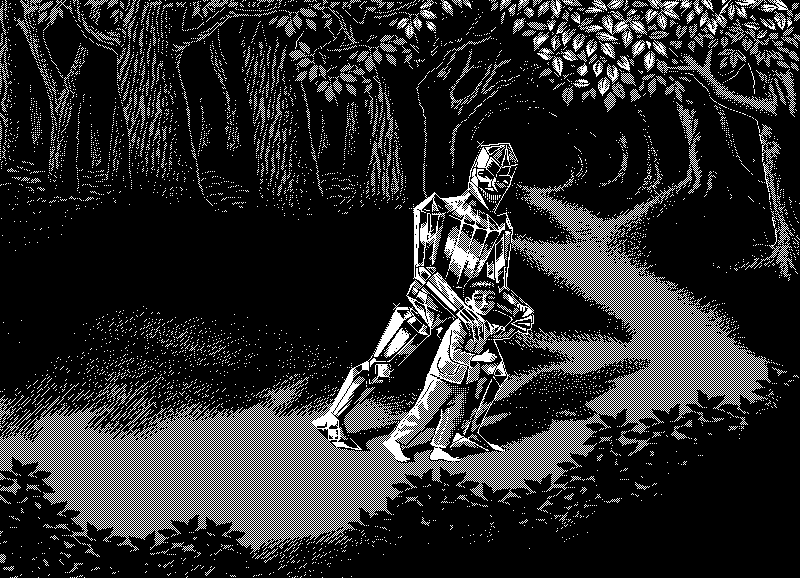
* Funny stuff and sexy stuff from Michael DeForge.
* The Sylvester Stallone Character Name Generator made me laugh very hard. (Via Mike Barthel.)
Carnival of souls: Los Bros Hernandez, Jordan Crane, Jonny Negron, more
July 27, 2011* This report on the Gilbert, Jaime, and Mario Hernandez spotlight panel at Comic-Con from CBR’s Sonia Harris makes for fascinating reading. All three brothers are really astute commentators on one another’s work.
* Kevin Czapiewski talks about one of my favorite things about Jordan Crane’s comics: his pictogram sound effects.
* Don’t let Nick Gazin’s short sell in the intro fool you: His interview with Jonny Negron for Vice is fun and informative, and contains a lot of Negron art I haven’t seen to boot.
* Hey, Vasilis Lolos is finally working on a second volume of Last Call! Now whatever happened to The Pirates of Coney Island?
Carnival of souls: Fan entitlement, Holy Terror, Supergods, more
July 26, 2011* I posted Tom Brevoort’s comments on fan entitlement on Robot 6, and to my surprise, the ensuing comment thread largely cosigned his statement, as well as similar recent sentiments from Grant Morrison and Bryan Lee O’Malley. I thought about all this stuff today while flipping through Morgan Spurlock and Alba Tull’s surprisingly delightful photo book Comic-Con Episode IV: A Fan’s Hope. The vision of Comic-Con and nerd culture presented in that book is, I’m sure, baffling or even troubling to some comics readers — cosplay, not comics, is its centerpiece; at a glance I’d guess Hollywood personages outnumber comics creators and publishers; and Tull’s portraits of Moto Hagio share a page with her pictures of Gareb Shamus. That said, it’s a picture of Nerd Triumphalism that is, in fact, triumphant. It’s not a bunch of angry, snarky naysayers insulting people and poo-pooing books and movies that haven’t even come out yet — it’s a vibrant, diverse (lots of women, lots of non-white people, lots of kids, even people in wheelchairs) selection of weirdoes, geeks, and creative types, coming together because they’re all excited about the stuff they love. If the people-power aspect of Comic-Con were the public face of nerddom all year round, nerddom would be a lot easier to support, and the crasser, more exploitative mass-marketing aspects of the show would be easier to ignore.
* Frank Miller talks Holy Terror in long-war terms I now find as dispiriting as his increasingly untethered cartooning is invigorating.
* Paul Gravett reviews Grant Morrison’s Supergods, with a focus on whether Morrison’s love of the superhero concept has caused him to undervalue the regular humans responsible for it. (Via Tim Hodler.)
* Dan Conner and Omar are joining the cast of Community. My goodness!
* Wow, Colleen Doran’s concept art for a Wonder Woman costume redesign is lovely.
* “Turtle City” is a deeply cool commission by Theo Ellsworth.
* This assembly of 80 different fan covers of “Black Dog” by Led Zeppelin is almost moving in how well it conveys the simultaneous playfulness and brute force of that almighty riff. (Via Whitney Matheson.)
Carnival of souls: Jim Woodring interviews, various creepy and lovely images, more
June 27, 2011* Nicole Rudick interviews Jim Woodring at glorious length for The Comics Journal:
RUDICK: Are [the apparitions you’ve seen] usually the same thing or similar things?
WOODRING: No, they’re always different. The last thing I saw was a guy standing upstairs in my hallway, standing bolt upright, with a leather harness on his face.
RUDICK: Does it frighten you to see those things?
WOODRING: That one was extremely frightening. At first, I thought it was my reflection in the mirror. Then I thought, There’s no mirror there. I saw this guy, just standing, wearing black pants and a white shirt, with his face in a leather harness with the number nine on leather tabs at every junction of the straps, and his mouth was open in a rictus. I could see his teeth, and his eyes were staring at me in this beseeching way. He left after a couple of seconds, but it was very vivid while it occurred.
Then a couple of years before that, I saw the Thompson Twins, Thomson and Thompson from Tintin. They were in black and white and were walking down the street with a full-color nine-foot streetwalker in fuchsia hot pants. That resolved into a woman and her two small children. Then the time before that, I was at the mall and my neighbor lady saw me and came up behind me and spoke my name, and when I turned around and looked at her, where her head should have been there was this eggshell of lint, which had the front pushed in, and there was a big gob of chewing gum or something sitting at the base of it. That was a frightening experience. I screamed when I saw that. That just scared the shit out of me.
The thing these all have in common is that they’re not at all vague, they’re very crisp, and I retain memories of them with extraordinary vividness. I’ve drawn all these things out. They’re very sharp, almost more sharp than real life, in the same way that when people meditate and they see the white light—it’s obviously not light, it’s not photons, it’s something else, more vivid than light. Because you’re not seeing with your eyes, you’re seeing with your mind when these things happen, they have sharpness and an intensity that regular visual things don’t.
That’s the juiciest part, but there’s stuff in there about the Surrealists, and horror as the sacred, and symmetry, and struggling with the presence of evil in a world that also contains wonderful things, and all manner of other stuff that hit me right in the gut. You must read this.
* Hey, it’s a new Emily Carroll comic! This contains one of her creepiest images yet.
* Fight Club screenwriter Jim Uhls will be adapting the Nine Inch Nails dystopian-future concept album Year Zero for Trent Reznor’s long-gestating HBO/BBC miniseries. That sounds fine.
* Too Much Coffee Man‘s Shannon Wheeler, of all people, nails the problem with Chester Brown’s Paying For It, as succinctly as anyone I’ve seen make the attempt. I think calling for a heavier editorial hand is a nonstarter, though, and for good reason. A heavier editorial hand would likely have preempted Chester Brown’s entire career.
* Curt Purcell salutes the proud wearer of Comics’ Greatest Jacket, Death Note‘s Naomi Misora.
* Paging Frank Santoro: Marcos Martin is really approaching page layout differently than anyone else in superhero comics, if this preview page from his and Mark Waid’s Daredevil #1 is any indication.
* I’m really not sure what Darryl Ayo’s comics call to arms is about — the problems, and the people, he’s addressing are described in terms too general to be useful. Mostly I find my enjoyment of comics increasing the less I worry about the state of comics, or more specifically the less I expose myself to the daily scrum of jawjaw about same. That said, he put together a gallery of lovely images to support the post, including these pieces by Al Columbia and Frank Quitely that I’d never seen before.
* Aeron Alfrey of Monster Brains has posted a couple of killer galleries lately. First up is the cosmic horror of Anatoly Fomenko, with its wondrous and oppressive sense of scale:
* And next is the scabrous, texture-heavy creature portraiture of Hasama (warning: the image below is fine, but the rest are not for anyone who’s squeamish about facial disfiguration):
* Aled Lewis’s “Video Games vs. Real Life” is similar to a Star Wars-based photography project that made the rounds a while back, but even though I was familiar with the basic idea at play, I still found this Donkey Kong image kind of unnerving. Looking through the foliage and seeing something looking back at you is the great cryptozoological dream/nightmare image.
* If you can’t trust them to straighten their belts, how can you trust them to save us all from Despero???
* I’m pretty excited to discover a Broadway revival of Godspell is in the works for this October. Stephen Schwartz, the show’s creator, is involved, so that leaves me optimistic that they won’t just slap a coat of Rent paint on the thing. It’s my favorite show.
Carnival of souls: Brian Chippendale on Marvel, Kim Thompson on Tardi/Manchette, the Big Man, more
June 20, 2011* My final Game of Thrones chat with Megan Morse is now up at The Cool Kids Table. I’d say this one’s most interesting for our talk of different approaches to season finales, and what was expected here versus what was delivered.
* Brian Chippendale is back writing about Marvel comics! Nobody does it better. He’s absolutely right that Uncanny X-Force is a really good book, by the way. Also, Brian Chippendale is on Twitter.
* Kim Thompson interviews himself about the new Jacques Tardi/Jean-Patrick Manchette book Like a Sniper Lining Up His Shot. I really don’t like the sound of what he says about cat lovers beware.
* Over at Topless Robot, my pal Rob Bricken has some fun at Green Lantern‘s expense. As he and I have both said before, you can put up with almost any number of plot holes of whatever width provided the stuff those holes were poked in was worthwhile to begin with.
* John Porcellino’s King-Cat #69 is now up on What Things Do. I liked that issue.
* New Ben Katchor is always a delight.
* Uno Moralez is great update: Uno Moralez is great.
* I haven’t been following Hans Rickheit’s Ectopiary; this page tells me I ought to get on that toot sweet.
* And how about that Moebius?
* Finally, I will miss Clarence Clemons, who helped make this.

